1kg과의 전쟁-굶으면 오히려 찐다
식욕을 관장하는 뇌의 시상하부는 대뇌로부터 다이어트 강제 명령을 받으면 외려 [온 힘을 다해 식욕을 촉진하는 방향]으로 항명한다. 그러다 조금만 의지가 약해지면 억눌려왔던 자연스런 식욕이 폭발, [폭식]으로 치닫는다. 잠깐 몸무게가 주는 듯 하다가 오히려 전보다 더 뚱뚱해지는 현상이 일어나는 것이다. {살찌고 싶으면 굶어라!}상식을 뒤엎는 진실은 바로 인체 메커니즘에 깃들어있다.
{음식을 먹지 않으면 물론 처음엔 체중이 빠집니다. 그러나 무조건 굶어서 당분의 공급이 모자라게 되면 인체는 비상사태에 돌입합니다. 에너지 소모를 줄이기 위해 기초 대사량을 낮추고, 들어오는 에너지를 모두 지방으로 저장하려는 태세로 바뀌어서, 조금만 먹어도 즉시 온몸에 쌓이게 되는 거지요.}.
몸무게는 빠지지만, 힘이 없어 일상 생활을 할 수 없을 뿐 아니라, 피부에 쪼골쪼골 주름이 지고 팔 다리가 흐늘흐늘해진다면? 당신은 틀림없이 무식한 굶기 다이어트로 몸을 버리고 있는 중이다. [굶기 다이어트]의 비극은 몸에 쌓인 지방이 아니라 근육과 피부의 단백질을 무너뜨려 [늙어버리게 만드는 데 있다]고 섭식장애 전문가 김준기씨([마음과 마음] 원장)는 말한다. 다이어트를 마음먹은 사람들이 맨 처음 시도하는 것이 대체로 음식물을 극도로
줄이는 방법. 그러나 효과는 정반대로 나타나는 경우가허다하다. 무리한 단식-감식 다이어트를 반복하다 보면 거의 음식을 먹지않는데도 살이 찌는 체질로 바뀔 수 있는 것이다. 물론 먹은 것이 살로 가거나 근육으로 가는 유전적인 요인도 무시할 수 없다.
{살을 빼려면 비만의 직접 원인인 지방을 태워버리기 위해 땀 흘려 움직이며 유산소 운동을 해야해요. 물론 식사량을 줄이고 당분 섭취도적게 해야하구요. 이 두 가지를 적절히 병행하지 않으면 금방 지쳐 떨어지게 되고, 다이어트하느라 긴장했던 것을 풀려고 더 먹게 됩니다.}. 운동요법가인 부인 김설향씨와 함께 비만클리닉을 운영하는 백명기씨([백명기 신경과 원장])는 철저한 식이 요법과 운동 요법이 다이어트성공의 두 바퀴라고 말한다.
{체중1㎏을 빼려면7천7백 칼로리를 써버려야해요. 보통 사람이하루3끼 밥과 반찬으로 먹는 것이2천∼2천3백칼로리니까, 쉽게 말하면사흘을 물만 마시고 굶어야1㎏이 빠진다는 계산이지요.}. 그러나 그런 방법은 [절대!] 안된다는 것이 백씨의 이야기. 그렇게 되면 너무 배가 고파, 참지 못하고 음식을 찾고 폭식하게되기 때문이다. 그래서, 나온 절충안이 하루5백 칼로리 절식법.
{음식 섭취량을3분의1이나4분의1정도 줄이고 조깅이나 빨리걷기, 자전거 타기 같이 산소를 많이 흡입하는 운동을 하면 기분이 우선 쾌적해집니다. 사람은 기분이 좋고 성취감이 있어야 뭐든 할 수 있거든요. 다이어트도 마찬가지입니다.}.
아침 한끼를 우유와 사과 반개로 버티는 [절식] 다이어트 중인 남수연씨(26)는 굶기 다이어트 실패의 산 증인. 1백60㎝ 키에 61㎏나가는 그는 우선체지방 비율이 34%나 되는게 걱정이었다. 단식법을 책에서 보고 첫 이틀은 미음으로, 다음 일주일은 물만 먹고 버텼는데, 일주일만에3㎏이 빠지자 황홀해졌다. 허리띠 구멍이두개나 줄었으니까. 그러나 오래가지 못했다. 이틀 미음으로 속을 달랜 후 다시 일상 생활로 돌아오자 마자 오히려4㎏이 불어났다. 절치부심, 다시 단식, 이번에는 10일 예정으로 들어갔다. 채 일주일을 못채우고 포기하고 말았다. 변비가 생기고 얼굴이퉁퉁 붓는가하면 기운이 없어 아무 일도 할수 없었기 때문이다. 그래서 욕심을 버리고 나선 것이 군것질 안하고 아침은 우유 한잔으로 때우기. 지난 두 주일 동안1㎏ 정도 줄었지만, 이제 장기전으로 돌입한 샘이다. 마음 먹는대로 체중을 줄일 수 있을까.
전문가들은 {왕도는 없다. 먹는 대로 운동하는 대로, 속임수 없는 더하기 빼기가 우리 몸의 솔직함}이라고 전문가들은 말한다. 기운 잃지 않고, 일상 생활을 하면서 건강하게 정상 체중을 유지할수 있는 다이어트는 자기 활동량에 맞는 적당한 식사와 운동이라는 극히 [당연한] 내용이라는 것이다. 무조건 운동을 한다고 살이 빠지는 것도아니다. 특히 [날씬해지겠다]는 일념에 고통을 감수하면서 억지로 하는 운동은 오히려 스트레스를 불러와 [식욕]을 돋운다.
과격하고 힘든 운동은 몸 속의 지방을 연료로 쓰는 것이 아니라 글리코겐 형태로 근육에 저장된 당분을 사용하는 까닭에, 날씬해지기 보다는 쭈글쭈글하게 만들어버리는 것이다. 입고만 있어도 체중이 빠진다는 체육복, 가만히 누워만 있어도 저절로 살이 빠지는 운동을 해준다는 기계도 과학적으로 풀면 헛된 망상일뿐이다. 바람직한 체중감량은 1주일에 0.5㎏이 한도다. 건강하게, 그리고 효과적으로 날씬해지기 위해서는 그야말로 지방을 태우는 지속적이고 꾸준한 운동과 음식량을 약간량 줄이는 [정공법]외에는 방법이 없는 것이다.
먹는 것이 바뀌면 다이어트 끝
다이어트의 가장 바람직한 방법은 잘못된 식습관을 고치는 것. 잘 길들여진 식습관만 바로 잡으면 무리한 다이어트를 하지않아도 원하는 만큼 살을 뺄 수 있다. 일상생활 속에서 간단하게실천할 수 있는 방법들을 소개한다.
* 야채는 샐러드보다는 익혀서 먹자
비타민과 미네랄이 풍부하고 칼로리가 거의 없는 야채는 다이어트중에 가장 많이 먹는 식품. 보통 날것으로 먹는 경우가 많은데 샐러드로 먹을 경우 마요네즈나 드레싱으로 오히려 역효과를 줄 수 있기때문에 데치거나 삶아 먹는 것이 좋다.
* 튀김은 튀김옷을 벗겨서 먹는다
다이어트 중에 튀김류는 되도록 먹지 않은 것이 좋지만 먹고 싶으면 튀김옷을 벗긴 후 먹는다. 먹는 시간은 점심시간이 적당하다. 오후의 일로 섭취한 칼로리를 소비할 수 있기 때문.
* 잘 씹어 먹으면 정량의 80%만 먹어도 배부르다
씹지 않고 먹는 습관은 비만의 지름길! 뇌에서 만복감을 느끼기 전에 과식하기 때문이다. 잘 씹어 먹으면 먹는 도중에 뇌에 만복신호가전달되어 과식을 막고 평소 먹는 양보다 20%정도는 줄일 수 있다.
* 질질 끌면서 먹지 않는다
천천히 먹는 것은 좋지만 식사를 하면서 텔레비전을 보거나 책을 보면서 먹는 것은 금물. 그러는 사이에 나도 모르게 과식하게 된다. 식사 시간을 잘 지키고 식사에만 집중한다.
* 음식은 익히거나 구워서 먹는다
자기 손으로 직접 만들어 먹는 것이 다이어트 성공의 첫걸음. 기름을 사용하지 않는 조리법을 알면 더욱 좋다. 석쇠에 굽거나 전자레인지에 익혀 먹는 습관을 갖도록.
* 당분과 지방의 동시 섭취는 NO!
당분과 지방이 동시에 함유되어 있는 것이 바로 케이크와 아이스크림. 기름에 튀긴 과자도 여기에 포함된다. 단것을 먹을 때는버터와 크림 사용을 피하고 그래도 정 먹고 싶을 때는 낮에 간식으로 조금씩 먹도록.
* 밤9(8)시 이후엔 음식물 섭취를 피한다
밤에 음식을 먹으면 에너지를 다 소비하지 못하므로 자는 동안에 지방이 축적된다. 먹는 시간이 늦어지면 늦어질수록 지방이 축적될위험이 커진다. 저녁은 되도록 일찍 먹고, 밤9(8)시가 지나면 음식물을 돌같이 보도록.
* 소나기 식으로 먹는 것은 금물! 하루3끼를 꼭 지킨다
아무리 영양 밸런스가 좋아도 한 꺼 번 에 먹는 것은 좋지 않다. 시간이 없어 아침은 거르고, 점심에 왕창 먹는 습관은 고친다.
*목이 마를 때는 물이나 우유를 마신다
당분이 많은 주스와 탄산음료는 조금만 마셔도 금방 칼로리가 넘친다. 목이 마를 때는 물이나 우유를 마시도록.
* 같은 식품이라도 저칼로리 메뉴를 고른다
뚱뚱해진다는 이유로 고기와 생선을 무조건 피하는 경우가 많은데 저칼로리 부위를 골라 먹으면 걱정 없다. 안심이나 등심, 살코기 등은 영양 밸런스도 좋고 살도 찌지 않는다. 빵이나 케이크 같은 간식보다는 확실한 식사가 다이어트의 기본.
* 맛과 간에 주의한다
소금이나 간장 등을 너무 많이 사용한 반찬은 밥을 더 먹게 만든다. 가능하면 조금 싱겁게 먹는 것이 좋으며 제맛이 나지 않을 경우에는허브나 레몬 등을 이용한다.
*다이어트 할 때 이것만은 꼭 지키도록!
다이어트할 때 가장 힘든 것이 바로 간식의 유혹. 초콜릿이나 도넛 한 개의 칼로리가 밥 한공기와 비슷하기 때문에 밥 대신에 이런 종류의 간식을 먹는다면 모든 것이 허사로 돌아 간다. 꼭 간식을 하고싶다면 다음에 유의하자.
1.햄버거를 먹을 때는 치즈버거(325Kcal)나 새우버거(437Kcal)보다는 일반 햄버거(250Kcal)를.
2.과일은 칼로리가 낮는 수박(21Kcal)과 딸기(23Kcal)가 적당하며
3.짜장면(670Kcal) 보다는 잡채(169Kcal)를
4.공기밥 세 배에 가까운 유부초밥(800Kcal)은 피하고
5.생맥주(185Kcal) 대신에 병맥주(96Kcal)를
6.과자를 먹을 때는 크래커(60Kcal)를 선택한다.
* 아침토스트 대신 시리얼…
아침식사로 토스트와 달걀 프라이, 베이컨을 먹는 사람이 많은데모두 기름을 이용한 음식이라 칼로리가 의외로 높다. 곡물이 함유된시리얼은 영양가가 높을 뿐 아니라 칼로리도 적고 시간도 절약되어 일석삼조. 우유와 함께 곁들여 먹기 때문에 음료로 인한 칼로리도 줄일 수 있다.
*아침에 먹는 과일은 보약!
부족하기 쉬운 식이섬유는 과일로 보충한다. 전날 밤에 먹기 좋은크기로 잘라 랩에 씌워 두면 간편하게 아침식사로 대용할수있다. (약간만.)
* 점심. 영양밥 대신 해초국수를!
점심식사는 대부분 외식하는 경우가 많은데 매식은 소금이나 간장등으로 맛을 내기 때문에 밥을 많이 먹게 되어 결국 높은 칼로리를섭취하고 만다. 여러 가지 야채가 들어간 영양밥보다는 해초나 곤약으로 만든 국수를 먹도록 한다.
* 고기국 대신 맑은 장국을 먹는다!
국거리용 고기는 기름기가 많은 것으로 조리하기 때문에 맑은 된장국이나 달걀국이 적당하다. 멸치와 다시마를 끓인 물에 달걀 한 개를풀어 넣으면 낮은 칼로리로 영양분을 섭취할 수 있다.
* 간식떡볶이 대신 야채 샌드위치를!
간식거리로 가장 즐겨 먹는 떡볶이는 밥 두 공기 정도의 칼로리. 여기에 튀김까지 곁들이면 그야말로 칼로리가 엄청나다. 입이 심심할때 떡볶이를 먹기 보다는 야채 샌드위치를 먹는 것이 훨씬 좋다. 집에서 만들어 먹을 때는 마요네즈 대신 요플레로 야채를 버무리면맛도 좋고 칼로리도 훨씬 낮아져 일석이조.
* 탄산음료는 NO! 녹차로 바꾼다!
녹차는 칼로리가 거의 없어 다이어트의 필수 아이템. 육체적인 피로 뿐 아니라 정신적인 피로도 해소시켜 주는 좋은 음료다. 알칼리성이기 때문에 기름기가 많은 음식을 먹고 난 후 마시면 더욱 효과적.
* 저녁. 고기 대신 우엉을, 생선 대신 콩과 시금치를!
저녁에는 각종 모임이 많아 고기나 생선을 주로 먹게 된다. 이럴때는 주변을 둘러 보아 대체 음식으로 먹을 수 있는 아이템을 찾는다. 예를 들어 고기 대신 버섯이나 우엉을 먹고, 생선 대신 콩이나 시금치 등 칼슘이 많이 함유된 야채를 섭취하도록 한다.
*신선한 야채를 많이 먹는다
야채를 생으로 먹기가 싫다면 식초를 이용하여 피클을 만든다. 양배추와 오이, 당근, 무 등 집에 있는 야채를 모아 식초에 절여 두었다가 하나씩 꺼내 먹으면 입맛도 살고 식이섬유도 보충하고!
벌꿀은 장의 청소부
벌꿀 다이어트법은 이상과 같이 간단하다. 언제 어디서나 할 수 있다는 것이 특징인데, 이외에도 벌꿀에는 뛰어난 효과가 있다
- 절대 변비에 걸리지 않는다. 2-3일간 벌꿀만 먹는데도 변비에 걸리지 않는다면 이상하게 느껴질 것이다. 그러나 실제로 해보면 놀랄만큼 변이 순조롭게 나온다. 이것은 벌꿀에 장의 활동의 활발히 하여 배변을 촉진하는 성분이있기 때문이다. 즉, 벌꿀은 천연의 완화제인 셈이다. 벌꿀 다이어트를 한 사람에게 물어보면 아무 것도 먹지 않았는데, 그동안 고여있던 변이 전부 나와 위장이 깨끗해졌다는 사람이많다. 이렇게 장내에 고여있던 독소가 배출 됨으로써 몸이 깨끗해지는 것이다. 체내의 독소가 배설되어 내장의 활동이 활발해지면 신체상태도 좋아져 혈액도 깨끗해지고 피부에도 윤기가 생기는 것이다. 그런 의미에서 피부병으로 고생하는 사람도 이 벌꿀 다이어트를 시험해 보면 좋을 것 같다.
- 벌꿀은 성서에도 등장할 정도로 옛부터 귀히 여겨진 건강식품이다. 중국에서도 옛부터 평소의 양생에 도움이 되고 부작용이 없는 최상의약으로 벌꿀이 인정받아 왔다.
-벌꿀에는 우리 몸의 건강유지에 꼭 필요한 비타민과 미네랄이 풍부하다. 그 중에서도 철이나 동, 엽산과 같은 성분은 적혈구를 만드는 조혈작용이 있다. 그런 면에서 볼 때, 벌꿀 다이어트는 허약 체질이나 빈혈인 사람에게도 좋은 건강법이라 할 수 있다.
치즈
치즈는 우유 속의 단백질, 카제인과 지방질을 떼어 가공한 식품으로 한 장당 405㎉의 고칼로리, 단백질, 지방, 칼슘, 비타민A, B1, B2, 나이아신 등이 풍부하게 들어 있다. 치즈에는 칼슘, 인, 황이 많아 무기질의 좋은 공급원이 될 뿐 아니라 비타민B 성분이 다이어트에 도움을 준다. 치즈와 함께 야채를 먹으면 더욱 좋다. 야채는 치즈에 부족한 비타민C나 식이섬유등이 함유되어 있기 때문에 먹는 양은 하루에 50~100g, 지방분 30%이하의 치즈를 선택해야 한다.
이런 음식을 먹자
살코기·흰살 생선
칼로리가 낮으면서도 고단백인 식품인 동물성 식품을 선택하는 것이 살 찐 사람에게 좋다. 껍질을 벗겨낸 닭고기의 흰살 부분과(돼지고기나 쇠고기보다 칼로리 면에서 낮기 때문에 좋으며, 돼지고기나 쇠고기를 조리할 때 기름기는 떼어버리고 살코기만을 먹는다),조기, 대구, 가자미 등의 흰살생선 등이 좋고, 고등어, 꽁치, 송어 같은 붉은살 생선은 지방이 많으므로 되도록 피하는게 좋다.
김·미역(해조류)
식사의 양을 줄임으로써 부족되기 쉬운 칼슘이나 철분 식품 등을 주의해서 먹어야 한다. 철분은 간, 달걀 노른자에 많이 들어 있으나 이러한 식품들은 마음 놓고 먹을 수 있는 식품이 못되므로 김, 미역등의 해조류나 버섯류 처럼 칼로리가 낮으면서 무기질이 풍부한 식품을 선택해서 포만감도 느끼고 필수 영양소도 충분히 공급할 수 있게 한다.
살찌기 쉬운 식품들
튀긴 음식 NO!
탄수화물과 단백질은 체내에서 연소될 때 1g에 4kcal의 에너지를 내지만 기름기(지방)는 1g에 9kcal의 에너지를 낸다. 살을 뺀다는 것은 음식으로 섭취한 에너지를 소비하여 체내의 지방을 쌓이지 않게 조절하는 것이므로 칼로리가 높은 기름기가 있는 음식은 되도록 먹지 않도록 하자. 밀가루나 빵가루를 묻혀 기름에 튀겨 낸 음식은 기름 흡수율이 높아 15~20g 정도의 기름을 섭취하게 된다.특히 튀김옷을 두껍게 입힌 튀김은 기름을 더 많이 흡수한다는 사실을 알아 두자.
중국음식 NO!
중국음식과 서양음식은 대부분 튀기거나 볶은 음식들이어서 칼로리가 매우 높다. 간혹 외식을 하게 될 경우 메뉴를 선택할 때 되도록 기름기 많은 중국음식이나 서양음식은 피하도록 하고, 어쩔 수 없이 먹게 되는 경우라면 섬유질이 풍부한 생채소를 먼저 먹이 배를 채운 다음 조금만 먹도록 한다.
땅콩·호도·잣 NO!
땅콩·호도·잣 등의 견과류는 고소하고 입맛이 당기기 때문에 한 번 먹기 시작하면 계속 집어 먹게 되므로 살을 찌게 하는 원인이 된다. 간식으로 마음 놓고 먹다가는 다이어트에 실패하고 만다. 땅콩 1큰술, 호도 큰 것 1개, 잣 20알이 기름 1작은술과 같은 45kcal의 에너지를 낸다는 것을 기억하자.
짜장면·라면 NO!
우리가 즐겨 먹는 국수류 중 가장 살이 찌기 쉬운 식품이 짜장면, 라면이다. 남녀노소 모두 즐겨 먹는 라면은 주로 탄수화물로 이루어져 있어 약 545kcal의 높은 에너지를 내며 비빔밥 한 그릇과 맞먹는 칼로리를 낸다. 따라서 밤참이나 간식으로 라면을 먹을 경우, 에너지가 고스란히 지방분이 되어 살이 찌게 된다. 또한 짜장면 역시 라면과 비슷한 고칼로리의 음식이므로 국수류를 먹고 싶을 때는 짜장면이나 라면보다는 일반 국수를 삶아서 양념장으로 비벼 먹거나 멸치국물에 담백하게 끓여 먹도록 한다. 삶은 국수는 100kcal당 110kcal 정도의 에너지를 내므로 짜장면이나 라면보다 훨씬 칼로리가 낮다.
통조림식품 NO!
과일 통조림, 채소 통조림, 생선 통조림 등의 식품들은 가공과정을 거치면서 당분이 첨가되는 경우가 많으므로 다이어트 식품으로는 피해야 할 식품이다.되도록이면 가공식품을 먹지 말고, 자연 상태의 신선한 재료를 선택해 직접 만들어 먹자.
과자·사탕·초콜릿 NO!
살을 빼겠다면서 밥을 먹지 않고 비스킷으로 식사를 대신 하는 경우가 있는데 이는 탄수화물만 주로 섭취하는 것이 되어 결과적으로 밥보다 칼로리를 많이 섭취하게 된다.예를 들어 포테이토칩 한 봉지는 500kcal 이고, 작은 크래커 1개는 20kcal의 열량을 내기 때문에 결과적으로 많은 칼로리를 섭취할 수밖에 없다. 다이어트를 하려면 우선적으로 과자, 사탕, 비스킷, 도넛, 핫도그 등 달고 칼로리가 많은 간식들은 피해야 한다. 이들 간식은 배가 부르지 않기 때문에 무의식적으로 많이 먹게 되므로 더욱 주의해야 한다.만약 꼭 먹고 싶다면 하루에 먹는 양을 정하여 일정한 양만큼 만 먹도록 한다.
패스트 푸드 NO!
요즘은 피자파이, 햄버거, 핫도그, 감자튀김 등 패스트 푸드를 즐겨 찾는 사람들이 많다. 하지만 패스트 푸드는 대부분 당분과 지방이 많이 들어 있고 대체로 맛이 진하다. 패스트 푸드에 익숙해지면 짠 맛에 길들여져 나쁜 식습관이 생기기 쉽고, 특히 살이 찐 사람들에게는 더욱 살을 찌게 만드는 원인이 되므로 피하는 것이 바람직하다.
청량음료 NO!
청량음료는 보통 과일이나 식물의 합성물질 추출물로 만든 것으로 대부분 설탕이 많이 들어 있다. 따라서 콜라, 사이다 등 청량음료는 다이어트 중에는 절대로 마시지 않는 것이 좋다. 만약 마시게 될 경우가 생긴다면 다이어트 콜라 등을 마시도록 한다.
음식의 칼로리 모음
강냉이 1접시 20 g 20 kcal
감자깡 100 g 481 kcal
감자칩 1봉 108 g 544 kcal
건빵 1봉 90 g 344 kcal
고래밥 1봉 54 g 232 kcal
꼬깔콘 1봉 95 g 520 kcal
다이제스티브 1개 9 g 40 kcal
로젤라 100 g 433 kcal
리치 100 g 439 kcal
마가렛트 100 g 480 kcal
맛땅콩 17알 14 g 80 kcal
몽쉘통통 100 g 400 kcal
빼빼로 1봉 50 g 50 kcal
빼빼로 1개 2 g 10 kcal
비스켓 1개 8 g 25 kcal
쌀로별 1봉 60 g 210 kcal
새우깡 1봉 90 g 494 kcal
셈베이 10 g 41 kcal
스틱파이 100 g 404 kcal
애플파이 85 g 253 kcal
웨하스 1봉 80 g 400 kcal
짱구 1봉 80 g 423 kcal
조우카 100 g 475 kcal
쵸코파이 1개 45 g 166 kcal
치즈스틱쿠키 100 g 396 kcal
치토스 1봉 128 g 682 kcal
켈러그 1인분 30 g 111 kcal
쿠키 100 g 492 kcal
크래커 5 g 24 kcal
팝콘 1봉 44 g 240 kcal
포테이토칩 1봉 108 g 544 kcal
후렌치후라이포테이토 1봉 64 g 360 kcal
김밥 1개 50 kcal
유부초밥 1개 80 kcal
찹쌀떡 1개 160 kcal
개피떡 1개 80 kcal
송편 1개 60 kcal
라면 1개 500 kcal
컵라면 1개 300 kcal
소보로빵 1개 200 kcal
링도우넛 1개 125 kcal
카스테라 1개 317 kcal
파운드케익 1쪽 230 kcal
핫케익 1개 200 kcal
프렌치토스트 1쪽 100 kcal
애플파이 1쪽 295 kcal
피자 1쪽 250 kcal
핫도그 1개 280 kcal
햄버거(맥도날드) 1개 280 kcal
햄버거(버거킹) 1개 310 kcal
켄터키프라이드치킨 1쪽 210 kcal
셈베이 1개 25 kcal
크렉커 1개 20 kcal
감자칩 10개 110 kcal
감자튀김 1봉 210 kcal
아이스크림 1개 100 kcal
밀크쉐이크 1컵 340 kcal
야쿠르트 1개 45 kcal
요플레(딸기) 1개 120 kcal
꼬모(딸기) 1개 115 kcal
요델리퀸(딸기) 1개 100 kcal
다농(딸기) 1개 115 kcal
비피더스(딸기) 1개 85 kcal
요델리퀸(플레인) 1개 100 kcal
바이오거트(딸기) 1개 100 kcal
바이오거트(플레인) 1개 95 kcal
한국야쿠르트 1개 85 kcal
불가리스 1개 150 kcal
파스퇴르요구르트 1개 87 kcal
덴마크요구르트 1개 70 kcal
초콜렛 1개 150 kcal
캐러멜 6개 120 kcal
초코빼빼로 1봉지 175 kcal
아몬드빼빼로 1봉지 240 kcal
더브러 1봉지 335 kcal
에이스 1봉지 810 kcal
양파링 1봉지 470 kcal
새우깡 1봉지 440 kcal
포테이토칩 1봉지 310 kcal
쌀로본 1봉지 925 kcal
쌀로랑 1봉지 600 kcal
초코파이 1봉지 160 kcal
밀크카라멜 1봉지 220 kcal
조리퐁 1봉지 370 kcal
버터링 1봉지 430 kcal
다이제스티브(일반) 1봉지 425 kcal
다이제스티브(초코) 1봉지 580 kcal
쌀로별 1봉지 425 kcal
고래밥(볶음양념맛) 1봉지 70 kcal
고래밥(불고기맛) 1봉지 75 kcal
컨츄리콘 1봉지 400 kcal
홈런볼 1봉지 250 kcal
캬라멜콘과땅콩 1봉지 420 kcal
후레쉬베리 1봉지 180 kcal
코카콜라 1캔 100 kcal
음식칼로리(면류)
국수장국 1인분 400 g 600 kcal
냉면 1인분 410 kcal
라면 1인분 120 g 500 kcal
라면(계란) 1인분 570 kcal
비빔냉면 1인분 500 kcal
사발면 1인분 86 g 410 kcal
스파게티 1인분 100 g 690 kcal
우동 1인분 450 kcal
유부국수 1인분 300 g 500 kcal
중국우동 1인분 400 g 600 kcal
짜장면 1인분 100 g 660 kcal
짜장라면 1인분 124 g 573 kcal
칼국수 1인분 100 g 460 kcal
컵라면 1인분 65 g 300 kcal
하이면 1인분 100 g 119 kcal
음식칼로리(빵류)
감자빵 1개 100 g 226 kcal
고르케(소) 1개 40 g 290 kcal
도우넛 1개 37 g 145 kcal
링도넛 1개 25 g 100 kcal
모카빵 1개 100 g 305 kcal
버터빵 1개 103 g 267 kcal
보리빵 1개 100 g 245 kcal
생크림 식빵 1개 100 g 252 kcal
생크림 케익 1쪽 100 g 340 kcal
소보르 1개 60 g 280 kcal
슈크림 1개 250 kcal
식빵 1쪽 35 g 100 kcal
식빵(쨈) 1쪽 140 kcal
식빵(버터) 1쪽 120 kcal
애플파이 1개 247 kcal
야채바게트 1개 100 g 233 kcal
야채빵 1개 100 g 271 kcal
참치샌드위치 1쪽 255 kcal
찹쌀도넛츠 1개 69 g 180 kcal
카스테라 1개 100 g 317 kcal
케익 1쪽 90 g 240 kcal
토스트 1쪽 20 g 67 kcal
파운드케익 1쪽 70 g 230 kcal
파이 1쪽 237 kcal
팥빵 1개 200 g 220 kcal
프렌체토스트 1쪽 30 g 100 kcal
피자 1쪽 173 kcal
피자 1쪽 100 g 250 kcal
하드롤빵 1쪽 15 g 40 kcal
핫케익 1쪽 70 g 245 kcal
햄버거 1개 100 g 400 kcal
호빵 1개 60 g 200 kcal
http://blog.theple.com/woocthle/187.html?cmode=List
내 기준 하루 필요 열량 1500 ~ 1600 kcal 정도.
59 Articles, Search Results for 'Other Scraps/Articles'
- 2009/01/13 음식의 칼로리 모음
- 2008/07/08 Slew of modern terms now in Merriam-Webster's
- 2008/06/26 미국의 대외 식량 정책 잔혹사 : 제국과 음식의 정치학
- 2008/06/12 라볶이 만들기
- 2008/05/28 냉면
- 2008/05/24 지시의 리더십과 질문의 리더십
- 2008/05/01 라면 맛있게 끓이는 16가지 방법
- 2008/04/25 옥수수치즈구이
- 2008/03/21 (예병일의 경제노트, 2008.3.20)
- 2008/01/13 WHAT HAVE YOU CHANGED YOUR MIND ABOUT? WHY?
- 2007/12/03 Gospel Truth
- 2007/11/02 2007 Heroes 추성훈 對 데니스 강
- 2007/10/18 자율성과 창의성이 강조되는 교육
- 2007/10/01 최민식
- 2007/07/30 The Last Supper
- 2007/07/26 Oprah tops list of highest paid TV stars
- 2007/07/18 운세
- 2007/07/15 10 bizarre sights in Google Street View
- 2007/06/30 베토벤: 3대 피아노 소나타 "비창", "월광", "열정" (1)
- 2007/06/15 목소리가 38%다 (2)
- 2007/06/12 Remarks of Bill Gates: Harvard Commencement
- 2007/04/06 고민하고 방황하는 경제학부생에게 / 이준구
- 2007/03/31 사이코에게 작은 동정을...
- 2007/03/19 육십갑자(六十甲子)
- 2007/02/28 데이비드 힐버트(Dived Hilbert 1862-1943)
- 2007/02/24 The 10 Greatest Books of All Time
- 2007/02/23 디지털뉴스 이용규칙 (1)
- 2007/02/22 진자의 운동
- 2007/02/22 예병일의 경제노트, 2007.2.21
- 2006/09/29 서울 지하철 노선도 속의 동물들
Slew of modern terms now in Merriam-Webster's
Is it acceptable to serve edamame to a dinner guest who's a pescatarian?
Should you pour prosecco or soju for the winner of the Texas Hold `em game you're planning near the infinity pool? And what's that wing nut in the corner saying about dirty bombs and nasty Noroviruses?
Before your next party, go ahead and consult the latest edition of Merriam-Webster's Collegiate Dictionary, which now includes edamame (immature green soybeans), pescatarian (a vegetarian who eats fish) and about 100 other newly added words that have taken root in the American lexicon.
The wordsmiths at the Springfield, Mass.-based dictionary publisher say they picked the new entries after monitoring their use over years.
"As soon as we see the word used without explanation or translation or gloss, we consider it a naturalized citizen of the English language," said Peter Sokolowski, an editor-at-large for Merriam-Webster. "If somebody is using it to convey a specific idea and that idea is successfully conveyed in that word, it's ready to go in the dictionary."
Many of the new entries reflect the nation's growing interest in the culinary arts, including prosecco (a sparkling Italian wine) and soju (a Korean vodka distilled from rice). Others define new technology or products, such as infinity pool - an outdoor pool with an edge designed to make water appear to flow into the horizon.
Others reflect current events and much-discussed news topics,
including dirty bomb (a conventional bomb that releases radioactive material) and Norovirus (small, round single-stranded RNA viruses, such as the Norwalk Virus).And then there's "mondegreen." In a category of its own, it describes words mistaken for other words. A mondegreen most often comes from misunderstood phrases or lyrics.
It comes from an old Scottish ballad in which the lyric "laid him on the green" has been confused over time with "Lady Mondegreen."
Among the best-known modern examples: "There's a bathroom on the right" in place of Creedence Clearwater Revival's "There's a bad moon on the rise" and "'Scuse me, while I kiss this guy" in place of "kiss the sky" in the 1967 Jimi Hendrix classic "Purple Haze."
Even Sokolowski, a word expert by trade, has a favorite mondegreen: "Lucy in the sky with diamonds," as sung by the Beatles in 1967, made obvious sense to the preteen Peanuts comic fan as "Lucy in the sky with Linus."
Merriam-Webster's editors were so amused by the mondegreen concept that they plan to ask people to submit their favorites on the publishing company's Web site.
Mondegreen, first spotted in print in 1954, was among tens of thousands of words the wordsmiths watched for decades.
That and others make the cut for the dictionary based on how widely they are used in publications ranging from newspapers to technical manuals.
"They can float for decades. What that means, for the most part, is that they've been used in more spoken forms than they were found written until recently," Sokolowski said.
John Morse, Merriam-Webster's president and publisher, said the cleverness of many Web-related terms makes them easy to grasp and gives them staying power. Webinar (an online meeting) is new, along with netroots (political grass-roots activists who communicate online, especially in blogs).
"There's a kind of collective genius on the part of the people developing this technology, using vocabulary that is immediately accessible to all of us," he said. "It's sometimes absolutely poetic."
SOME NEW WORDS
Merriam-Webster Inc. has added more than 100 new entries to its new edition of the Collegiate Dictionary. Here are some, along with the year in which Merriam-Webster first found them used in an English-language publication:
Edamame (1951): Immature green soybeans, usually in the pod.
Fanboy (1919): Boy who is an enthusiastic devotee, such as of comics or movies.
Mental health day (1971): Day that an employee takes off from work to relieve stress or renew vitality.
Mondegreen (1954): Word or phrase that results from a mishearing of something said or sung. From the mishearing in a Scottish ballad of "laid him on the green" as "Lady Mondegreen."
Netroots (2003): Grass-roots political activists who communicate via the Internet, especially by blogs.
Norovirus (2002): Any of a genus of small round single-stranded RNA viruses; specifically, Norwalk virus.
Pescatarian (1993): Vegetarian whose diet includes fish.
Prosecco (1881): A dry Italian sparkling wine.
Subprime (1995) 1: Having or being an interest rate that is higher than a prime rate and is extended especially to low-income borrowers; 2: extending or obtaining a subprime loan.
Webinar (1998): Live, online educational presentation during which participating viewers can submit questions and comments.
Wing nut (circa 1900): Slang: one who advocates extreme measures or changes; radical.
Sources: Merriam-Webster Inc., The Associated Press
http://www.dailynews.com/ci_9803196
| soju |
| 미국인도 당황스러운 한국의 '미국 맹신' | ||||||||||||||||||||||||||||||||||||||||||||||||||||||||||||||||||||||||||||||||||||||||||||||||||||||
| [제국에서 띄우는 편지 ⑮] 미국의 대외 식량 정책 잔혹사 : 제국과 음식의 정치학 | ||||||||||||||||||||||||||||||||||||||||||||||||||||||||||||||||||||||||||||||||||||||||||||||||||||||
| ||||||||||||||||||||||||||||||||||||||||||||||||||||||||||||||||||||||||||||||||||||||||||||||||||||||
<재료>
고추장, 설탕, 물엿, 케첩, 만두, 맛살, 계란, 브로콜리, 당근, 어묵, 햄, 라면, 떡
<방법>
1. 물을 넣어주세요.
2. 삶은 달걀을 넣어주세요.
3. 고추장은 2숟가락 정도 넣어서 잘 풀어주세요.
4. 케첩은 1~2 가락 정도 넣어 잘 풀어주세요.
5. 설탕 3숟가락 물엿 2숟가락 정도 넣어주세요.
6. 물이 끓으면 어묵과 햄을 넣어주세요.
7. 라면사리를 넣어주세요.
8. 당근을 넣어주세요.
9. 떡을 넣어주세요.
10. 만두와 맛살을 넣어주세요.
11. 브로콜리도 넣어주세요.
12. 예쁜접시에 담아서 맛있게 드세요.
꼬마요리사
전문분야 간단요리
 냉면은 메밀가루에 녹말을 약간 섞어 반죽하여 국수를 만들어 건져서 큰 대접에 담고, 편육 ·쇠고기 볶음 ·오이채 ·배채 ·삶은 달걀 등의 고명을 얹어 놓는다.
냉면은 메밀가루에 녹말을 약간 섞어 반죽하여 국수를 만들어 건져서 큰 대접에 담고, 편육 ·쇠고기 볶음 ·오이채 ·배채 ·삶은 달걀 등의 고명을 얹어 놓는다. 국수에는 쇠고기 ·닭고기 ·꿩고기로 만든 육수나 동치미국물을 미리 차게 식혀 두었다가 가만히 부은 후, 식초와 겨자를 곁들여 먹는다.
이 냉면을 평양냉면이라 한다.
또 함경도 지방에서 발달한 함흥냉면은 그 고장에서 많이 나는 감자녹말로 만드는데, 면이 질기고 오들오들하며 싱싱한 가자미나 홍어같은 생선으로 회를 쳐 고추장으로 양념하여 비벼 먹는다.
추운 겨울철에도 따뜻한 온돌에서 속까지 시원한 평양냉면과 얼얼하고 쫄깃쫄깃한 함흥냉면을 즐겨 먹던 멋스러운 음식문화는 6 ·25전쟁 후 남쪽에서도 널리 애용 되었다.
동국세시기(1849)에 나오는 냉면의 첫기록을 보면 ‘겨울철시식’으로서 메밀국숙에 무김치, 배추김치를 넣고 그 위에 돼지고기 얹은 냉면이 있다‘란 내용이 나온다.
육수는 돼지고기가 적합지 않으니 쇠고기 장국을 쓴다.
여름에는 동치미국이 없고 열무김치나 나박김치가 있으니 아주 쉽게 국수를 말아 먹을 수 있으며 이제 열무김치냉면은 대중식이 되어버렸다.
더위에 입맛을 잃었을 때 시원하고 새콤한 냉면 맛은 별미가 아닐 수 없다. 메밀과 녹말을 섞어 뽑은 사리에 시원한 육수를 부은 다음 수육이나 삶은 계란 등을 얹고 식초와 겨자를 곁들여 먹으면 밥과는 아주 다른 이색적인 맛을 느낄 수 있다.
메밀 가루에는 녹말이 대부분인 당질이 73%나 들어 있고 단백질은 10% 정도 함유되어 왔다. 메밀은 쌀이나 밀가루보다 아미노산이 풍부하며 특히 필수 아미노산인 트립토판이나 트레오닌, 라이신 등이 다른 곡류보다 많다. 단백질의 질이 우수할 뿐만 아니라 비타민 B1과 B2는 쌀의 3배나 되며 비타민 D와 인산 등도 많이 들어 있다.
메밀은 변비와 고혈압에 매우 좋은 식품으로 전해져 오고 있다. 메밀에는 모세혈관을 튼튼하게 하는 비타민P의 한가지인 루틴이 6mg%나 들어 있다. 이 루틴은 고혈압과 동맥경화증, 궤양성 질환, 동상, 치질, 감기 치료 등에 효과가 인정되어 임상적으로 이용되는 성분이다.
식중독균은 새콤한 맛을 갖는 산성상태가 되면 생활조건이 맞지 않아 번식이 잘 안된다. 식초가 살균력을 가지고 있기 때문이다. 세균 수가 많아져 식중독의 위험성이 있는 냉면에 식초를 타서 먹는 것은 풍미와 위생, 영양의 세 가지를 잘 조정해 주는 일석삼조격이다.
냉면은 메밀을 주재료로하는 저칼로리 음식이다.
또한 메밀에는 '리파아제'라는 지방분해 효소가 들어 있어 냉면 다이어트를 할 경우 지방 분해능력이 높아지는 효과를 기대할 수 있다.
또 물냉면이든 비빔냉면이든 회냉면이든 종류는 어느 것이나 상관없다. 입맛대로 골라 먹는다.
냉면 위에 엊어 먹는 고명이 칼로리가 높으므로 맛이있는 고명을 엊어 먹거나 주점부리가 심하면 말짱 도루묵 된다.
냉면 칼로리 체크
물냉면 520Kcal, 비빔냉면 578Kcal, 회냉면 580Kcal(1인분 기준)
식초, 달걀, 사리를 추가시킬 경우 칼로리는 더 올라간다.
★ 고향의 맛③ 이북 '만두와 냉면'
명절 연휴가 지난 지금, 민족 대이동 속에 고향집 부모님을 뵈었지만 고향에 가고 싶어도, 부모님을 뵙고 싶어도 할 수 없는 사람들이 있다. 그분들을 위해 고향의 음식 세 번째, 이북 음식편을 마련했다.
★ 내 손으로 만드는 여름별미 ‘냉면’
냉면의 영양과 효능, 함흥식냉면과 평양식냉면의 차이, 냉면과 곁들이는 식초, 겨자, 삶은 계란 등 냉면의 구석구석에 숨어있는 영양학을 짚어보고, 집에서 만들어 먹을 때 쫄깃하게 면 삶는 법, 맛있는 육수 만드는 법, 매콤한 양념장 만드는 법까지 생각만해도 입맛 당기는 냉면의 모든 것을 소개한다.
 ◈ 물냉면
◈ 물냉면
재료
냉면국수 350g, 소고기 (양지머리 또는 사태) 200g, 대파 1대, 마늘 4쪽, 양파 1/2개, 무 100g, 고운 고춧가루 1/2큰술, 오이 1/2개, 배 1/3개, 소금, 설탕, 계란 2개
육수 : 육수 6컵, 동치미 국물이나 끓여 식힌 물 6컵, 소금, 국간장, 식초 3큰술, 설탕 2큰술, 겨자 갠 것 1큰술
만드는 법
 ◈ 비빔냉면
◈ 비빔냉면
재료
냉면 400g, 쇠고기 150g, 오이 1개, 무 1토막, 배 1/4개, 삶은 달걀 2개, 설탕물 약간, 고춧가루 2큰술
냉면 양념장 : 고추장 3큰술, 고추가루 2큰술 , 배즙 1큰술 , 양파즙 2큰술, 흑설탕 3큰술, 식초 3큰술, 다진 파 2큰술, 마늘 1큰술, 깨소금 1큰술, 참기름 1큰술, 사이다 2큰술, 간장 1큰술, 육수 4큰술, 소금 2작은술
만드는 법
 ◈ 열무물냉면
◈ 열무물냉면
재료
냉면국수 500g, 열무 물김치 3컵, 배즙 1컵, 육수 3컵, 설탕, 식초, 소금 약간, 오이 1개, 편육 4쪽, 배 1/2개, 달걀 2개, 청,홍고추 2개, 설탕, 소금 약간, 깨소금, 식초 약간
부재료 : 갠 겨자 1큰술, 소금, 식초, 설탕 약간
만드는 법
 ◈ 열무비빔냉면
◈ 열무비빔냉면
재료
냉면국수 400g, 열무김치 2컵, 김치 국물 1컵, 식초 3/4큰술, 설탕 2큰술, 겨자 1작은술, 통깨 1큰술, 참기름 1큰술, 소금 약간, 쇠고기 200g
쇠고기 양념 : 간장 1큰술, 설탕 2작은술, 마늘 다진 것 1/2큰술, 파 다진 것 1큰술, 참기름 1/2큰술, 후춧가루 약간
만드는 법
|
[2008년 5월 23일 금요일] |
|
지시의 리더십과 질문의 리더십 |
|
(예병일의 경제노트, 2008.5.23) 위대한 질문은 사심이 없고 똑똑함을 자랑하지도 않으며 자기만족도 없다. 상대방을 격려하고 통찰력이 있고 도전적이다. 또한 공손하고 일체감을 준다. 위대한 질문은 성찰과 학습이 최대치가 될 때를 기다린다. 궁금한 것이 많은 리더는 회의 자료, 의제, 논의할 실천 과제가 없는 비공식 모임을 잘 활용한다. 그는 직원의 역량이 강화되는 질문을 바로 꺼낸다. "생각하고 있는 게 뭐죠? 그것에 대해 말해주겠습니까? 잘 이해할 수 있도록 설명해주세요. 진짜 걱정거리가 뭐예요?" '지시의 리더십'. 많은 리더들의 모습입니다. 언제부터인가 직원들의 말을 경청하지 않기 시작합니다. 그리고 일방적으로 지시만 합니다. 일이 생각대로 진행되지 않으면 바로 감정적인 질책을 합니다. "이번 일은 왜 이 모양입니까?" "이 정도밖에 못합니까?" 그러곤 뒤돌아서 한탄만 하지요. 직원들은 직원들대로 위축되고 힘만 듭니다. 직원들의 방어적인 태도 속에서 조직은 성과가 나지 않습니다. 반면에 '질문의 리더십'도 있습니다. 좋은 리더들의 모습입니다. 새로운 아이디어를 묻는 개방적인 질문들. "프로젝트는 잘 되고 있습니까?" "목표 달성을 위해 무엇이 필요합니까? 지원이 필요한 부분은 무엇인가요?" 좋은 질문에는 감정이 들어가 있지 않습니다. 자기 위안을 위한 것이 아니라 상대를 격려하기 위한 질문입니다. 겸손함도 배어 있지요. 이런 리더와 함께 하는 직원들은 위축되지 않습니다. 새로운 아이디어, 창의적인 방안들이 자연스레 나오고 그것은 성과로 이어집니다. 1."내가 도울 수 있는 일은 없나요?" 2."당신은 어떻게 하겠습니까?" 3."다른 사람이라면 어떻게 할까요?" 저자가 소개한 3가지 좋은 질문들의 사례입니다. 좋은 리더라면 '지시의 리더십'이 아니라 '질문의 리더십'을 발휘해야 합니다. |
라면에 설탕을 넣어라.
누구나 그렇듯 중고등학교 매점에서 먹었던 라면을 그리워할 것이다. 또 학교때 매점 아주머니가 라면 끓이는 솜씨가 장난이 아니었을 것이다. 그래서 물어본적이 있는데 그 진상은 라면 1개당 설탕 반스푼정도를 넣는 것이다. 이 맛은 라면 미식가라면 뭔가 확실히 다른 것을 느낄 수 있을 것이다. 시험해 보라.
라면에 후춧가루
전에 군 생활하는데 라면이 생겨서 취사장엘 갔다. 물론 취사장에서 불을 켜면 들키니깐 불은 끄고 라면을 뜯고 물도 대충 붓고 더듬더듬 근데 결정적으로 고춧가루를 넣는다는 게 그만 후추가루를 넣고 말았다! 그래서 라면을 끊이는데~앗! 실수로 넣은 후추의 맛이!!! 이럴 수가!! 상황도 상황이고 하니 당연히 맛있겠지 하실 분들(모르는 소리) 지금도 제대한지가 1년이 훨씬 넘었지만 야간에 가끔 이런 식으로 끊여 먹으면 추억도 새록새록 맛은 예나 지금이나 변함없고 후춧가루가 왕창 들어간 라면! 한번 해보자.
라면 순하게 먹기
대단한 것은 아니고 집에 두부가 조금 있으면 꺼내서 얇게 잘라 라면 끓일 때 넣으면 라면이 순해진다. 두부를 너무 살짝 익히면 두부의 스리슬쩍 넘어가는 부드러운 맛을 못 느끼니 두부는 약간 오래 익힐 것.
라면과 깻잎의 조화!!
참치김밥의 경우 참치의 기름기를 빼기도 하지만 깻잎이라는 것 때문에 더욱 완성도가 높아지는 것이 아닐까? 한다. 라면을 끓이고 막판에 깻잎을 넣어주면 깻잎 특유의 고소한 향이 라면에 푹 베구 맛도 일품이다. 한봉지당 깻잎은 5~7매가 적당. 김을 넣어도 좋다. 바싹 마른 김을 다 끓인 후 뽀사넣으면 김특유의 향이 라면 맛을 돋궈준다.
라면을 두배 맛있게
라면에 식초를 아주 약간 넣는 것이다. 라면에 식초를? 하는 사람이 있을지 모르지만 천만의 말씀 라면에 감칠맛을 더할뿐더러 끝맛을 깔끔하게 만들어주고 결정적으로 라면의 독성을 제거해준다. 라면하나에 식초 한스픈 정도로 잡고 한번 실험해 보라. 스프를 넣을 때에 거품이 눈에 뜨이게 주는 것을 발견할 수 있을 것이다. 거품은 곧 독성물질을 뜻하는 것이니깐.
프로는 계란을 이렇게 푼다.
라면을 보다 맛있게 먹는 방법으로 계란을 넣는데 계란을 넣는 타이밍과 만드는 방법을 소개해 보겠다. 계란은 미리 풀어서 그것에 깨소금과 참기름. 그리고 약간의 후추를 뿌려두면 준비끝~ 그 상태에서 라면이 거의 90프로 끓었을 시에 넣어주면 된다. 너무 일찍 넣으면 딱딱해지고 너무 나중에 넣으면 휙휙 겉돈다. 타이밍이 중요하다. 그리고 뿌릴 때도 그냥 휙~~넣지 말고 가장자리서부터 한바퀴 돌리듯이 넣으면 훨씬 골고루 퍼지게 되는 것이다. 이 방법은 일반 분식점에서도 널리 이용되는 방법이다. 하나더 미적 효과를 중시하는 사람은 흰자는 위의 방법으로 풀고 노른자는 라면이 다 끓은 후에 불을 약하게 하고 면 위에 깨지지 않도록 살짝 올린 후 잠시 익힌다. 라면봉지와 같은 그림이 된다.
유난히 느끼한 것이 싫다면
면과 국물을 따로 끓이기도 싫고 라면의 기름기는 싫고 그렇다면 마늘 빻아놓은 것을 넣어보라. 우리나라 음식에 마늘 안 들어간 음식이 없거니와 실제 넣으면 뒷맛이 깔끔해지고 라면에서 이런 맛도 나오는구나.. 할 것이다. 마늘 좋아하는 사람은 필수
치즈를 넣어라
치즈를 좋아하는 사람이라면 라면 완성직전 뜸들일 시간에 피자를 넣어보라. 피자를 넣고 뚜껑을 닫고 경건한 마음으로 식탁에 가져온 후 먹는다. 이때 라면위에 얻쳐진 치즈를 휘젓게 된다면 상상하지 못할 상황이 되니 금물, 치즈 얹힌 라면을 후루룩 먹으면 끝. 그냥 치즈대신 피자치즈를 잘게 잘라서 뿌려도 된다. 아 그릇에 옮겨서 뿌려도 된다. 본인은 항상 냄비 채로 먹기땜시...
각종 국을 이용하라
느지막이 일어났다면 지금 해는 중천에... 집에는 아무도 없고 밥도 없다. 혹시 집에서 살림(식순이?)을 조금이라도 했다면 한 그릇도 안 되는 국이 냄비에 남아있다면 난감하게될 것이다. 먹자니 같이 먹을거리가 없고 안 먹자니 남기기도 모하고.. 이럴 때 과감히 라면에 응용하라. 라면을 위해 고기국물을 우려내는 것은 무모한 짓이지만 남아 있는 소고기무국에 라면을 끓이는 것은 결코 무모한 짓이 아니다. 술한잔 거하게 했으면 콩나물국을 찾아보라. 콩나물라면이 해장에 도움을 줄 것이다. 속이 허하면 어제꺼 먹다 남은 백숙 그릇을 보라. 그 국물로 라면을 끓이면 백숙보신라면 (?)쯤이 될 것이다. 비유가 허락한다면 모든 국이 가능하다. 이때는 국에 기본 양념이 되어있기 때문에 스프는 조금만 넣을 것. 스프가 원래 국의 맛을 버린다 싶으면 소금 혹은 간장으로 간을 해라.
비린내나는 라면에는 이렇게..
역시나 보기 좋게 만든 라면이라도 비린내가 난다면 다 먹기 힘들 것이다. 이때는 커피를 조금만 넣어보라 실제 족발집에서도 돼지의 비린 냄새를 없애기 위해서 커피를 넣는다. 비린내를 없애는 첨가물은 마늘, 생강, 심지어 레몬이나, 술을 넣는 경우도 있으니 참고.
식초는 저리 가라 - 타바스코소스
라면이라고 하면 모두 느끼하다고 생각한다. 물론 느끼하다는 걸 알면서도 꾸역꾸역 먹고 있는 것이 현실이지만 방법은 있다. 하나는 여러분들도 많이 알고 있는 식초! 그리고 또하나는 바로 타바스코 소스! 식초야 물론이고 타바스코 소스 역시 약간 신맛을 가지고 있다. 식초는 알고 계신 것처럼 티스푼으로 하나 정도, 타바스코 소스는 집에 돈이 많다면 많이 넣어도 괜찮지만 적당히 넣자. 피자헛 같은 곳의 타바스코소스는 정작 할인매장에서도 구입하려하면 비싸지만 잘 뒤지면 싼 종류의 타바스코 소스를 구할 수 있다는 점도 잊지 말길 바란다.
진짜 깔끔한 라면을 먹고싶으세요?
국수 끓일 때 넣는 멸치다신물 아는가? 그걸 한 냄비 끓여서 PET병에다 넣고 냉장고에 보관하다가 배가 엄청 서럽다싶으면 냅다 꺼내서 라면 넣을 물 대신에 사용해 보라. 평소 라면의 느끼한 맛에 정을 못 붙이던 분들도 뻑 갈 것이다. 그냥 맹물라면은 쨉도 안 된다. 응용편으로 냉라면 계열의 라면도 만들 수 잇다. 멸치다신물이 너무 대단하다 생각되면 다시마 물도 괜찮다.
계란은 국물 맛을 버린다.
흔히들 라면엔 계란을 풀어서 끊인다. 라면에 계란을 넣지 않고 끓이는 이유는 둘중 하나. 첫째는 냉장고에 계란이 없어서 일 테고 둘째는 라면의 참맛을 알기 때문이다. 라면에 계란이 들어가면 맛을 버린다. 하지만 영양학 상으로는 라면 하나 만으론 영양이 부족하다. 국물까지 쪽쪽 빨아먹는다 해도 500Kcal를 넘기기가 힘들다. 이래 가지고선 한끼 식사론 너무 부실하다. 하지만 라면 맛도 살리고 계란을 넣어 영양가도 보충하는 방법이 있다. 라면이 보글보글 끓을 때 계란을 깨쳐서 넣긴 넣되 절대 젓가락으로 젓지 않는다. 그 상태 그대로 내버려두면 환상적인 라면 본래의 맛과 함 께 얇게 펴진... 그러면서 국물도 혼탁 시키지 않는 계란도 먹을 수가 있는 것이다. 달걀을 풀어서 넣어야 하는 음식으로 대표적인 것은 만두국이나, 계란국이다. 이 때 보통 파와 함께 완전히 풀어서 넣는 것으로 심심한 국물의 맛을 없애고 담백한 맛을 내기 위한 것이다. 라면을 보다 담백하길 원 한다면 계란을 푸는 것도 가능하다.
우유로 라면을 끊인다면..
진짜 우유라면을 끓인다면 물 대신에 우유를 넣고 스프 대신 소금(혹은 간장정도)으로 간을 하는 것이다. 허나 이 방법은 너무 싸이코틱 라면으로 가는 얘기고. 우유를 전부 넣을 경우 라면은 사리곰탕이나 진국설렁탕등의 면을 사용한다. 물이 쉬 끓지 않기 때문에 주의를 기울여야한다. 맛은 매우 담백하고 진국의 맛을 느낄 수 있을 것이다. 또 한가지는 라면의 비릿한 맛을 없애기 위해 끓인 후 우유를 섞는 방법이 있다. 이것은 라면의 강하고 매운맛을 없애고 부드럽게 만들어주기에 노약자, 어린이들에게 좋다 라면을 끓일 때물을 조금만 넣어 끓이고 마지막에 우유를 약 50~100ml 정도를 넣어주면 좀더 담백한 라면을 먹을 수 있을 것이다. 우유대신 두유를 넣는 사례도 있으니 참고하길. 단 라면에 따라 피보는 경우도 있으니 조심.
라면! 쌈장을 넣구 끓여보라!!
라면에 쌈장 넣구 끓여 보았나? 우선 해물라면(흰색봉지)이 사용되고 다른 라면의 경우 맛을 책임질 수 없음을 유의하라. 우선 물을 팔팔 끓인다. 그리고 쌈장과 간장약간. 고추가루 듬뿍 거기다 스프까지 넣고 5분 정도 더 끓인다. 그 다음에 라면을 넣는다. 결과는 라면면발 하나하나에 쌈장특유의 구수한 맛이 스며들어가서 국물이 죽인다. 단 쌈장은 슈퍼 파는 것을 바로 투입하면 안되고 집에서 약간 손봐야 한다. (참기름과 마늘, 야채 약간등)
면발에 힘주기
분식집에서 먹는 라면은 시간이 흘러도 면발이 퍼지지 않고 꼬들꼬들하다. 그 비법을 공개한다. 사실은 이 방법은 잡지나 TV에서도 나온 방법으로 라면을 적당히 설익을 때까지 끓이다가 뚜껑을 덮고 불을 끈 채로 약 1분간 뜸을 들이는 것이다. 자주 먹는 라면이 면발이 확실히 다르다는 거 느낄 것이다.
http://bbs1.miznet.daum.net/griffin/do/miztalk/sensetoc/living/mycook/read?bbsId=00041&articleId=54503
http://www.magazinet.co.kr/Articles/article_view.php?mm=004009000&article_id=47980
|
[2008년 3월 20일 목요일] |
|
모르는 것은 모른다고 말하고, 도와달라고 부탁하는 사람 |
|
(예병일의 경제노트, 2008.3.20) 왜 사람들은 모르면서도 모른다고 말하지 못하고, 도움이 필요하면서도 도움을 청하지 않을까? 상대방이 무시하거나 도움을 거부할 것이라고 생각하기 때문이다. 또 도움을 요청하는 것은 의존적인 사람들이나 하는 일이며, 주도적인 사람은 남에게 의존을 하면 안된다고 생각하기 때문이다. 주도적으로 산다는 것은 다른 사람의 도움을 거부하는 것이 아니라 적극적으로 도움을 요청하는 것이다. 최선을 다한다는 말 속에는 다른 사람에게 도움을 요청하는 것이 포함되며 그것은 가장 주도적인 행위 중 하나다. "저는 잘 모르겠습니다"라고 말하기는 쉽지 않습니다. "도와주세요"라는 말도 잘 나오지 않지요. 영국의 철학자 버트랜드 러셀이 컬럼비아대학교에서 강연을 했다고 합니다. 강연이 끝나자 한 학생이 질문을 했고, 그는 대답을 못하며 몇 분 동안 생각에 잠겼습니다. 러셀은 한참 후 학생에게 질문 내용을 되물으며 "이것이 질문하려는 내용 맞습니까?"라고 확인했습니다. 그후 러셀은 더 오랫동안 생각에 잠겼고, 이어 대철학자는 이렇게 말했다고 합니다. "정말 좋은 질문이군요. 그런데 나는 그 질문에 답할 능력이 없네요." 저자는 "기꺼이 모른다고 말하라"고 조언합니다. 모르는 것을 '모른다'고 인정하는 사람에게 사람들은 솔직하고 겸손하며 당당하다는 인상을 받기 때문이라는 겁니다. 사람들은 그런 사람들을 좋아하지요. 또 자신을 가르치려는 사람보다 자신에게 가르침을 요청해오는 사람을 더 좋아하는 것이 사람의 마음이기도 합니다. 서머셋 모옴은 "인생을 거의 다 살고 난 다음에야 '나는 몰라요'라고 말하는 것이 얼마나 쉬운지를 알게됐다"라고 말했다고 합니다. 마크 트웨인은 "나는 대답을 빨리 해서 사람들을 기쁘게 하는 재주가 있다. '나는 모른다'고 말한다"라고 했습니다. 중국속담에 "부탁하는 사람은 5분 동안 바보가 될 수 있다. 하지만 부탁하지 않는 사람은 평생 동안 바보가 된다"라는 말도 있다네요. 모르는 것은 모른다고 말하고, 도움이 필요하면 도와달라고 부탁하는 것... 그것이 솔직하고 겸손하며 당당한 사람의 모습일 겁니다. |
|
The Edge Annual Question — 2008 When thinking changes your mind, that's philosophy. WHAT HAVE YOU CHANGED YOUR MIND ABOUT? WHY? Science is based on evidence. What happens when the data change? How have scientific findings or arguments changed your mind?" 166 contributors; 113,000 words |
Gospel Truth
Houston
AMID much publicity last year, the National Geographic Society announced that a lost 3rd-century religious text had been found, the Gospel of Judas Iscariot. The shocker: Judas didn’t betray Jesus. Instead, Jesus asked Judas, his most trusted and beloved disciple, to hand him over to be killed. Judas’s reward? Ascent to heaven and exaltation above the other disciples.
It was a great story. Unfortunately, after re-translating the society’s transcription of the Coptic text, I have found that the actual meaning is vastly different. While National Geographic’s translation supported the provocative interpretation of Judas as a hero, a more careful reading makes clear that Judas is not only no hero, he is a demon.
Several of the translation choices made by the society’s scholars fall well outside the commonly accepted practices in the field. For example, in one instance the National Geographic transcription refers to Judas as a “daimon,” which the society’s experts have translated as “spirit.” Actually, the universally accepted word for “spirit” is “pneuma ” ? in Gnostic literature “daimon” is always taken to mean “demon.”
Likewise, Judas is not set apart “for” the holy generation, as the National Geographic translation says, he is separated “from” it. He does not receive the mysteries of the kingdom because “it is possible for him to go there.” He receives them because Jesus tells him that he can’t go there, and Jesus doesn’t want Judas to betray him out of ignorance. Jesus wants him informed, so that the demonic Judas can suffer all that he deserves.
Perhaps the most egregious mistake I found was a single alteration made to the original Coptic. According to the National Geographic translation, Judas’s ascent to the holy generation would be cursed. But it’s clear from the transcription that the scholars altered the Coptic original, which eliminated a negative from the original sentence. In fact, the original states that Judas will “not ascend to the holy generation.” To its credit, National Geographic has acknowledged this mistake, albeit far too late to change the public misconception.
So what does the Gospel of Judas really say? It says that Judas is a specific demon called the “Thirteenth.” In certain Gnostic traditions, this is the given name of the king of demons ? an entity known as Ialdabaoth who lives in the 13th realm above the earth. Judas is his human alter ego, his undercover agent in the world. These Gnostics equated Ialdabaoth with the Hebrew Yahweh, whom they saw as a jealous and wrathful deity and an opponent of the supreme God whom Jesus came to earth to reveal.
Whoever wrote the Gospel of Judas was a harsh critic of mainstream Christianity and its rituals. Because Judas is a demon working for Ialdabaoth, the author believed, when Judas sacrifices Jesus he does so to the demons, not to the supreme God. This mocks mainstream Christians’ belief in the atoning value of Jesus’ death and in the effectiveness of the Eucharist.
How could these serious mistakes have been made? Were they genuine errors or was something more deliberate going on? This is the question of the hour, and I do not have a satisfactory answer.
Admittedly, the society had a tough task: restoring an old gospel that was lying in a box of its own crumbs. It had been looted from an Egyptian tomb in the 1970s and languished on the underground antiquities market for decades, even spending time in someone’s freezer. So it is truly incredible that the society could resurrect any part of it, let alone piece together about 85 percent of it.
That said, I think the big problem is that National Geographic wanted an exclusive. So it required its scholars to sign nondisclosure statements, to not discuss the text with other experts before publication. The best scholarship is done when life-sized photos of each page of a new manuscript are published before a translation, allowing experts worldwide to share information as they independently work through the text.
Another difficulty is that when National Geographic published its transcription, the facsimiles of the original manuscript it made public were reduced by 56 percent, making them fairly useless for academic work. Without life-size copies, we are the blind leading the blind. The situation reminds me of the deadlock that held scholarship back on the Dead Sea Scrolls decades ago. When manuscripts are hoarded by a few, it results in errors and monopoly interpretations that are very hard to overturn even after they are proved wrong.
To avoid this, the Society of Biblical Literature passed a resolution in 1991 holding that, if the condition of the written manuscript requires that access be restricted, a facsimile reproduction should be the first order of business. It’s a shame that National Geographic, and its group of scholars, did not follow this sensible injunction.
I have wondered why so many scholars and writers have been inspired by the National Geographic version of the Gospel of Judas. I think it may stem from an understandable desire to reform the relationship between Jews and Christians. Judas is a frightening character. For Christians, he is the one who had it all and yet betrayed God to his death for a few coins. For Jews, he is the man whose story was used by Christians to persecute them for centuries. Although we should continue to work toward a reconciliation of this ancient schism, manufacturing a hero Judas is not the answer.
기획특집 - 한국의 문학교육
자율성과 창의성이 강조되는 교육
- 프랑스의 문학교육
박 해 현(조선일보 파리특파원)
프랑스의 문학교육은 초등학생 때부터 시 외우기를 중시한다.
개인적인 경험을 늘어놓는다면, 파리의 공립초등학교에 다니는 필자의 딸아이는 프랑스어 정규과목으로 매주 시 외우기 숙제를 해야 한다. 우리 아이는 6살 때부터 '포에지'라는 프랑스어를 마치 구슬을 어루듯 혀로 굴릴 줄 알아야 했다. 딸아이가 1학년 때 외웠던 시로는 라 퐁텐의 우화를 꼽을 수 있다. "나무 가지에 앉은 까마귀 아저씨 / 부리에 치즈를 물고 있네 / 여우 아저씨, 향긋한 내음에 끌려 / 혀를 조금 내미네…… " 운운하는 시 「까마귀와 여우」는 우리가 잘 알고 있는 우화를 담고 있다. 까마귀가 치즈를 입에 물고 있는 것을 본 여우가 그 앞에서 온갖 감언이설로 까마귀를 꼬드겨서, 마침내 우쭐해진 까마귀가 제 아름다운(?) 목소리를 뽐내려고 입을 열다가, 그만 치즈를 떨어뜨려 여우가 낼름 주워먹는 다는 이야기다. 라 퐁텐은 이솝 우화를 시로 만들어서 후세에 전했고, 급기야는 한국에서 태어나 아비를 따라 파리의 초등학교에 몸을 담게 된 우리 아이의 입에서 시가 암송됐다.
딸아이의 학년이 올라갈수록 외우는 시의 수준도 높아졌다. 물론 가장 간단한 시형식에서 벗어나지 못하지만, 때로는 한국에서 성인용(?) 시로나 통용되는 시인 자크 프레베르의 작품이 아이의 시 숙제 노트에 적혀 있기도 한다. 프랑스인들의 애독서로 꼽히는 프레베르의 시집 『파롤』에 실린 시 「내 집에」를 아이와 함께 외우기도 했다. 어설프게나마 아이에게 뜻풀이를 했던 시의 앞 부분은 이랬다. "당신은 내 집에 오리라 / 사실, 이건 내 집이 아니네 / 누구의 집인지 나도 몰라 / 어느날 이렇게 내가 들어왔을 때 / 아무도 살고 있지 않았네 / 흰 벽에 거미 한 마리 뿐이었네 / 오랫동안 여기에 살았지만 / 아무도 오지 않았네 / 하지만 매일매일 / 나는 당신을 기다리네…… "
나는 딸아이에게 자크 프레베르가 어떤 시인인지 설명할 필요를 느끼지 못했다. 어차피 우리 딸은 시행을 다 외우고 나서도, 자크 프레베르란 이름까지 시의 한 행이라고 생각했으니까. 미당 선생의 시를 한국의 초등학교 2학년들이 외우면 얼마나 귀여울까 하는 생각이 잠시 들었을 뿐이었다. 그리고 그 아이들이 미당 서정주라는 이름까지 시의 마지막 행인양 외워서, 한 위대한 시인의 이름을 속으로 삼켜 오랜 세월이 흘러도 유년을 거슬러 올라가 그 이름을 되새김질 할 수 있다면, 얼마나 좋을까라는 생각이 들면서, 프랑스의 '포에지' 교육이 새삼 부러웠다. 시가 언어의 무용임을 어릴 때부터 체득하도록 하도록 하기 위해 시를 외우게 하는 것이다.
프랑스의 문학교육도 우리처럼 고전을 읽고 이해하는 데 많은 시간을 할애한다. 중학교에 가면, 몰리에르의 희극이나 모파상의 단편소설들을 읽힌다. 원전을 강독하고, 작품의 주제와 문체, 어조, 양식 등을 배우는 것은 우리와 다를 바가 없다. 필자는 한 번도 중학교와 고등학교의 문학수업을 참관한 적이 없다. 단지, 교사출신의 프랑스인 친구에게 들은 바로는, 교사가 마음 먹기에 따라 지정된 문학 프로그램 안에서 다양한 작품들을 읽힐 수 있고, 당대의 작가 작품들도 수업시간에 다룰 수 있다는 것이다.
그리고 보니까, 지난 20세기의 마지막 해 겨울, 불문학자 김화영 선생님과 함께 프랑스 문단의 대가 미셸 투르니에의 집을 방문했을 때가 기억난다. 투르니에는 우리에게 어느 중학교 선생님이 보내온 선물이라면서 한 권의 문집을 보여주었다. 중학생들이 쓴 산문을 모아 엉성하지만, 귀엽게 제본한 문집이었다. 그것은 학생들이 투르니에의 산문 한 편을 패러디해서 각자의 소망을 담은 글모음집이었다. 가령, 내게 고양이가 있다면, 내게 배 한척이 있다면, 내게 딸이 있다면 등등 각자의 가정법으로 시작하는 글들이었다. 그러니까 중학교 학생들이 문학사의 시간을 거슬러 올라가지 않고, 당대의 노작가의 글을 나름대로 음미했다는 얘기가 된다.
우리의 교실로 시선을 돌렸을 때, 피천득 선생의 수필 한 편을 읽고, 그것을 패러디해서 쓰라고 숙제를 내는 국어 선생님은 지극히 드물 것이다. 아니면, 1960년대 이후 한국 작가의 작품을 중고교 수업 시간에 다루는 선생님도 찾아보기 어려울 것이다.
프랑스 문학교육의 최근 경향은 문학교육의 대상을 시와 소설과 같은 전통적인 문학장르에 한정하지 않는다는 것을 꼽을 수 있다. 대형 슈퍼마켓의 책 코너에서 발견한 중학생용 문학교과서는 우리의 기준으로 보면, 파격적인 교육방법을 동원하고 있었다. 마르셀 줄리앙이라는 소설가 겸 시나리오 작가가 쓴 이 교과서는 영화를 비롯해 만화, 신문-잡지의 기사, 광고까지 넓은 차원의 문학으로 아울러서 아이들에게 문학의 개념을 안내한다. 언어의 기원, 기호의 세계, 문학과 문체, 문학사의 흐름 등등을 다룬 이 교과서는 화려한 원색 사진과 미술작품들을 동원해서 마치 한 권의 화려한 잡지처럼 편집됐다. 흰 종이에 검은 글자만 있는 교과서로는 이미지 세대의 학생들을 사로잡지 못하리라는 이유 때문이기도 했겠지만, 어쨌든 문학이 자유로운 상상상력의 활동이듯, 문학교과서 역시 학생들의 상상력을 자극하기 위해 최대한 노력했다는 점이 돋보인다.
프랑스인들이 가장 많이 읽는 현대소설이라면, 알베르 카뮈의 『이방인』, 장 폴 사르트르의 『말』, 앙드레 말로의 『인간 조건』 순이라고들 한다. 대개 고등학교 때 이 소설들을 읽어내기 때문에 당연히 최대의 독자를 확보할 수 있다. 물론, 프랑스의 고교생들도 대학입학자격시험을 보기 위해 문학수업을 받아야 하고, 문제도 풀어야 한다. 그런데, 대학입학자격시험의 국어문제라는 게 우리와는 많이 다르다.
가령, 1999년에 출제된 문제의 지문은 "이미지들, 특히 텔레비젼의 세계는 그것에 대한 비평이 새로운 문학 장르가 될 정도로 지성의 세계를 뒤흔드는가"라고 시작한다. 철학자 뤽 페리와 앙드레 콩트-스퐁빌이 1998년에 펴낸 책 『현대의 지혜』에서 따온 「이미지의 역할」이란 글이다. 현대인의 삶의 양식을 철학적으로 분석한 책에서 텔레비젼을 중심으로 한 이미지의 순기능과 역기능을 따지면서, 이미지에 대한 논쟁을 유도한 글이다. 학생들은 이 글을 읽으면서 독해 능력을 측정하는 단답형 문제에 답을 하고, 간단한 작문도 해야 한다. 흔히 시대적으로 수험생들과 거리가 먼 고전을 지문으로 채택하지 않고, 바로 동시대의 텍스트를 통해서 수험생들이 일상적으로 경험하는 문제에 대한 논리적 사고능력까지 요구하는 국어문제다.
프랑스의 문학교육과 관련해서, 흥미로운 이벤트라면, '고등학생들의 공쿠르상'을 꼽을 수 있다. 프랑스 최고 권위의 공쿠르상과 별도로, 지난 1988년 만들어진 이 상은, 말 그대로, 전국의 고등학생들이 참여해서 독자적으로 매년 11월 초 그 해의 신작소설을 대상으로 심사를 해서 수상자를 결정하는 청소년 문학축제다. 교육부와 대형 서점 프낙이 공동으로 주관하는 이 상의 심사기간 중 최종심에 오른 작가들은 학생들과 대화의 시간을 갖기도 한다. 올해 수상자는 중국계 여성작가 산 사의 소설 『바둑두는 여자』였다. 전국 2천여명의 고교생이 심사에 참여한 뒤 각 지역 대표들이 별도로 모여 9편의 후보작을 놓고 최종심을 가졌다. 아카데미 공쿠르가 올해의 공쿠르상 수상작으로 뽑은 『붉은 브라질』은 고교생 사이에서 3위를 차지했다. 그러나, '고등학생의 공쿠르상' 수상작 선정은 언론에서 주요기사로 취급될 정도로 어느덧 권위를 쌓아갔다. 문학 소년과 소녀들에게 교실의 울타리를 벗어나 동시대 문학의 현장을 체험케하는 이 행사 역시 프랑스적 문학교육의 일환이라고 볼 수 있다.
http://daesan.or.kr/wepzine/5/contents/%B1%E2%C8%B9%C6%AF%C1%FD5.htm


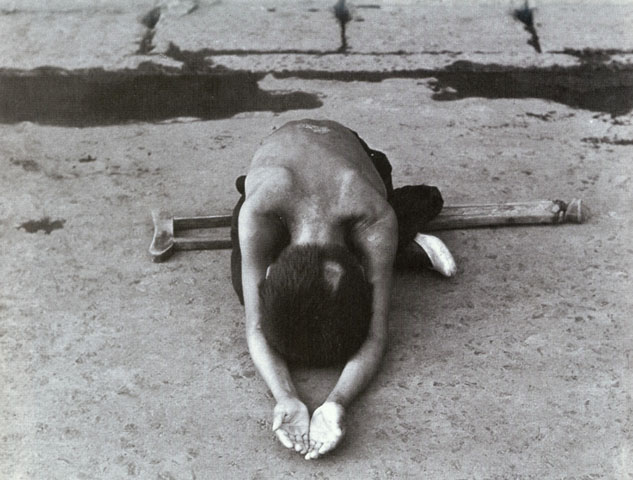
Oprah tops list of highest paid TV stars
Talk might be cheap, but Oprah is not, topping a list of the highest-paid television stars in the United States.
Oprah Winfrey, host and supervising producer of "The Oprah Winfrey Show," earns an estimated $260 million a year, according to a list in TV Guide magazine's July 23 issue. Music producer Simon Cowell, the blunt and often contentious British judge of "American Idol," placed a distant second to Winfrey, with $45 million for his role on the Fox network's smash hit talent show and other projects.
Courtroom chief Judge Judy (Judith Sheindlin), CBS News anchor Katie Couric and "Scrubs" actor Zach Braff round out the top five.
The list breaks down star salaries by category -- prime-time TV, daytime, cable and news with a partial listing below:
TOP FIVE (all salaries are per year)
Oprah Winfrey ("The Oprah Winfrey Show"): $260 million
Simon Cowell ("American Idol"): $45 million
Judge Sheindlin ("Judge Judy"): $30 million
Katie Couric ("CBS Evening News Anchor"): $15 million
Zach Braff ("Scrubs"): $6.3 million
NETWORK PRIME TIME (all salaries are per episode)
William Petersen ("CSI"): $500,000
Charlie Sheen ("Two and a Half Men"): $350,000
Mariska Hargitay ("Law & Order: SVU"): $350,000
Chris Meloni ("Law & Order: SVU"): $350,000
Hugh Laurie ("House"): $300,000
Julia Louis-Dreyfus ("New Adventures of Old Christine"): $225,000
Ellen Pompeo ("Grey's Anatomy"): $200,000
Eva Longoria ("Desperate Housewives"): $200,000
DAYTIME (all salaries are per year)
Judge Judy: $30 million
Bob Barker: $10 million
Maury Povich (per year plus profits): $7 million
Ellen DeGeneres: $5 million
Jerry Springer: $3 million - 4 million
Tyra Banks: $3.5 million
NEWS ANCHORS (all salaries are per year)
Katie Couric ("CBS Evening News" anchor): $15 million
Matt Lauer (NBC "Today" co-anchor): $12 million
Meredith Vieira (NBC "Today" co-anchor): $10 million
07월(정미, 丁未)은 중요한 역할을 맡게 되는 달입니다. 새로운 기회의 시기이기도 합니다. 능력 발휘가 또한 잘 되는 달이니 기회를 잘 활용하시기 바랍니다.
마음이 다소 답답한 달이네요. 위기가 오면 크게 느껴지는 달입니다. 하지만 극복할 수 있는 방법은 의외로 가까이 있습니다. 재정적인 문제라면 ㅇ 성씨나 ㄱ 성씨에게 부탁을 하시기 바랍니다. 좋은 결과나 해법이 있을 것입니다. 행동하지 않으면 큰 어려움이 되지만 실천에 옮기면 그리 어려운 문제가 아닙니다. 결자해지 라는 말이 있습니다. 나서서 해결하면 막힐 것이 없으니 직접 해결하세요. 가정이나 집안의 문제라면 크게 걱정하지 않으셔도 됩니다.
08월(무신, 戊申)은 유독 흐름이 좋은 달입니다. 어려움이 생겨도 전화 위복이 되는 달이니 운의 흐름상으로는 부족함이 전혀 없는 달입니다. 활용을 많이 하셔야 후회가 없습니다.
연인이나 배우자와 다툼이 있는 시기군요. 사소한 실수나 오해가 원인입니다. 남의 탓을 하지말고 본인의 탓이다 생각하시기 바랍니다. 새로운 인연은 좋지 않으니 의논해야 할 일이 있으면 이미 알고 있는 가까운 지인을 찾으시기 바랍니다. 무모한 제의를 받으면 일단은 거절하는 것이 좋으며 짝사랑이나 프로포즈는 이번 달은 무모하게 도전하지 마십시오. 제3자의 일에 개입하면 구설이 따르니 이 또한 경계하셔야 합니다.
09월(기유, 己酉)은 주변에 도움을 많이 받는 달입니다. 혹은 도움을 주게 되는 달이군요. 두 가지 전부 좋은 결과로 이어지는 달이니 흐름에 부족함이 없습니다.
여명을 딛고 해가 중천으로 솟는 시기입니다. 모든 일이 분명해지니 마음이 한결 가볍습니다. 중요한 결정을 내려야 할 시기이군요. 다른 사람의 의견을 듣더라도 결정은 본인의 의지를 많이 참고하세요. 판단에 실수가 없는 시기이므로 좋은 결정을 내릴 것으로 보입니다. 귀인의 기운이 있으니 분명 현명한 판단을 도울 것입니다. 가정에는 기쁜 일이 있을 것이니 집안을 걱정하지 않아도 됩니다. 새로운 일들이 준비 될 것이니 만사형통 입니다. 어려움은 순간이고 경사는 앞으로 크게 일어날 것입니다.
이 밖에 무슨 일이 있어도 반드시 경계하고 조심해야 하는 달은 10월(경술, 庚戌) 입니다.
계획한 일이 차질이 생기는 시기군요. 중요한 계획이라면 미리 점검하시어 만약의 사태를 대비하시기 바랍니다. 본인의 실수가 아니라 해결책이 없어 큰 곤란을 당하게 될 수도 있습니다. 다른 사람의 말을 듣고 진행한 일이 있다면 직접 점검해 보시기 바랍니다. 생각치 못한 일이니 미리 대비하는 것이 상책입니다. 돈을 빌려야 하는 경우라면 이번 달은 무리를 많이 하게 됩니다. 가급적 재물과 관계된 일이나 손실이 발생할 가능성이 있는 일에는 관여하지 마시기 바랍니다.
From
베토벤: 3대 피아노 소나타 "비창", "월광", "열정"
글: 김태우
http://www.goclassic.co.kr/basic/199908.html
Ludwig van Beethoven
(1770 - 1827)서양음악의 작곡기법과 형식은 매우 다양하지만 그 중에서 가장 대표적인 하나를 꼽는다면 그것은 '소나타(Sonata)'가 될 것이다. 이는 성악곡에 반대되는 기악곡을 통칭하는 말로 우리가 접하는 고전음악의 적어도 절반 이상이 독주악기나 관현악이나, 실내악을 위한 기악곡들이며, 이것들은 모두 큰 의미의 '소나타'다. 이것이 피아노와 같은 독주악기를 위한 경우에 우리는 그대로 '소나타'라고 부르지만 그외의 경우에 '교향곡'이라고도 부르며 '현악 사중주'라고도 하며 '협주곡'이라고 부르기도 한다. 요컨데 '소나타'라는 것은 빠르고 느린 몇 개의 악장으로 이루어지는 하나의 작품을 일컫는 것이다. 작품으로서의 소나타 이외에 악장의 작곡양식으로서의 '소나타'가 있다. 어떤 음악에 대해 설명할 때 '1악장, Allegro, 소나타형식'과 같은 말을 자주 하게 되는데 소나타들의 첫 악장은 거의 예외없이 소나타형식을 취하고 있다.
음악양식으로서의 소나타 피아노와 같은 독주악기를 위한 소나타는 3악장의 구성이 흔하지만, 실내악이나 관현악을 위한 소나타 (현악사중주곡, 교향곡)는 4악장의 구조가 많은데 이 경우 세 번째 악장은 짧은 무곡이 삽입된다. 위에서도 언급됐듯이 소나타의 첫 악장은 소나타형식으로 만들어진다. 그렇다면 소나타형식이란 어떤 것인가.
소나타 형식은 비교적 빠른 템포를 취하여 크게 제시부, 전개부, 재현부(혹은 도입부, 발전부, 재현부)의 세 부분으로 나뉘어진다. 제시부에서는 제 1주제가 으뜸조로 나타나며 이 주제의 조성을 곡의 조성으로 본다. 제 1주제는 조성에 관계없이 활기차고 생기있는 느낌을 가지는 경우가 많다. 주제가 제시되면 그 선율과 화성을 소재로 하여 약간의 변화를 주는 경과구가 나타나게 되고 이어서 2주제가 시작된다. 2주제의 조성은 1주제에 의해 결정되는 경우가 많다. 보통은 1주제의 으뜸조에 대한 딸림조나 관계장조(1주제가 a단조였다면 2주제는 C장조가 된다는 식으로)로 나타나게된다. 또 하나의 특징은 활기있는 제1주제에 비해 2주제는 서정적이고 '한 숨 돌리는 듯 한' 느낌을 주는 경우가 많다는 것이다. 고전파시대의 소나타들을 가만히 들어보면 이러한 특징들을 쉽게 발견할 수 있다. 전개부는 제시부에 포함된 소재들을 음악적으로 발전시켜나가는 부분이다. 1주제의 화성, 2주제의 화성, 경과부의 선율들이 복잡하게 얽히고, 다양한 조성이 등장한다. 대위법적인 기술이 등장하는 경우도 적지 않다. 재현부는 제시부가 다시 등장하는 부분이다. 하지만 이번에는 제 2주제의 조성이 제 1주제와 동일하다. 음악의 오묘함이 바로 여기에 있다. 서로 대조적인 분위기와 상이한 - 실제로는 종속적인 - 조성을 가지는 두 가지의 주제가 발전부에서의 복잡한 전조를 거듭하여 그 음악적인 갈등이 절정에 달하는 순간에 동일한 조성을 가지는 두 가지의 주제로서 나타나게 되는 것이다. 이 때에는 분위기마저 흡사하다. 대립하는 두 가지 사상이 갈등을 겪은 후에 융화된 하나가 된다는 것은 우주에서 가장 자연스럽고 바람직한 섭리가 아닐까? 음악이라는 것이 본질적으로 깊이있고 도덕적이며 건전한 것이라는 것을 여러 작곡양식을 통해 증명할 수 있지만 소나타형식은 가장 쉽고도 대표적인 예가 될 수 있을 것이다.
두 번째 악장은 통상적으로 서정적인 분위기를 가지는 느린 악장이다. 조성은 소나타형식의 1,2주제의 관계와 마찬가지로 1악장의 딸림조 혹은 관계장조이며, A-B-A의 세 도막형식이 가장 빈번하게 사용된다. A부분은 아름다운 선율이 가요풍으로 노래되고, B부분은 딸림조로 전조되어 다소 폴리포닉 (몇 개의 선율선이 겹쳐져서 진행되는 양식)하게 진행된다. 되돌아오는 A부분은 첫 머리보다 화성적인 구조가 약간 복잡하다. 소나타형식의 2주제와 마찬가지로 '한 박자 쉰다'는 느낌이 강하다.
마지막 악장에는 론도형식이 가장 많이 사용된다. 템포는 첫 악장보다 훨씬 빠르고 주제의 동기는 짧고 간결하다. 론도(Rondo)라고 하는 것은 하나의 주제를 끼고 몇 가지의 다른 경과부가 계속해서 등장하는 형식을 말하는 것이다. 경과부와 경과부사이에는 반드시 주제가 삽입되며 직접 다음의 경과부로 넘어가는 일은 없다.
소나타를 구성하는 악장들은 전체적으로 변증법적인 구조를 지닌다. 대립되는 성격의 악장이 2개 연속하여 등장하고 종악장에서 갈등은 해소된다. 요컨데 정-반-합이다. 악장을 구성하는 소나타형식과 같은 원리이다. 이처럼 합리적인 곡의 구성은 가장 많은 작곡가들의 공감을 일으켰고 서양음악의 '주류'로 자리하게 하였다.
베토벤은 32곡의 피아노 소나타를 작곡했다. 이것은 건반악기를 위해 작곡된 음악 가운데 가장 방대하고 위대한 유산이다. 비록 최만년에 소나타를 작곡하지는 않았지만 그의 피아노 소나타는 베토벤의 전생애에 걸친 작곡양식의 변화를 가장 잘 보여주는 작품들이기도 하다. 32곡의 소나타 중 어느 한 곡도 그 수준이 떨어진다고 할 수 있는 곡은 없지만 그 중에서도 대중적으로 가장 큰 사랑을 받고 있는 세 곡은 '3대 소나타'라고 불리는 8번과 14번, 그리고 23번이다. 이들은 각각 '비창', '월광', '열정'이라는 별명으로도 불리고 있는데 8번을 제외하고는 작곡자의 의도와 관계없이 붙여진 이름이며 상업적인 냄새도 풍기고 있지만 이렇게 훌륭한 곡들을 보다 많은 사람들에게 접할 수 있게 해 준다는 의미에서 나쁘게 생각할 필요는 없을 것 같다.
베토벤의 피아노 소나타 베토벤을 진정한 낭만주의자라고 평가하는 근거는 평생동안 끊임없이 추구한 새로운 양식에의 시도에 있다. 교향곡에 스케르초를 도입한 것이라든가, 5번 교향곡에서 같은 리듬의 주제를 전곡에 걸쳐 집요하게 다루는 모습과, 주제를 전개시키고 발전시키는 천재적인 솜씨, 피날레에 느닷없이 끼어드는 스케르쪼의 동기, 합창을 도입한 교향곡, 3번 교향곡의 피날레에 등장한 대규모의 변주, 독주악기의 카덴짜로 시작하는 협주곡등등, 그가 시도한 새로운 양식은 수도 없을 정도이다. 피아노 소나타도 예외가 아니어서 '3대 소나타'라고 불리는 소나타들 중 정형적인 소나타의 형태를 취하고 있는 것은 23번 하나 뿐이며, 8번과 14번에는 당시까지 상상도 할 수 없었던 파격이 이루어지고 있다. 각각의 곡에 대해 간략히 살펴보자.
1934, 1933 Mono
Piano Sonatas No. 8 "Pathetique", No. 14 "Moonlight", No. 23 "Appasionata"
BEETHOVEN
Artur Schnabel (piano)
EMI 8CD
피아노 소나타 8번 "비창"
1악장 (991KB)
2악장 (706KB)
3악장 (481KB)MP3 Player가 없으시다면 
이 소나타는 베토벤 자신이 "비창적 대 소나타(Grande Sonate pathetique)"라고 명명한 작품이다. 처음 듣는 순간부터 곡이 끝날 때 까지 한 순간도 귀를 뗄 수 없을 정도로 매력적인 내용을 가지고 있지만 사실 8번 소나타의 작곡양식 자체가 대단히 충격적인 것이다. 8번 소나타는 그의 모든 작품들 중에서 가장 호모포닉(단선율을 위주로하는 화성진행)한 곡이다. 선율은 명쾌하고 왼손의 반주도 극히 단순하다. 두터운 화음도 등장하지 않는다. 하지만 곡의 구성이 너무나 극적이고, 맹렬한 분위기와 감미로운 노래, 연주하는데 필요로 하는 기교를 훨씬 상회하는 압도적인 연주효과로 인해 극히 산뜻한 효과를 얻어 내었고 나아가 대중적인 인기까지 차지할 수 있었던 것이다.
피아노 소나타 8번, C단조, op.13 "비창" 그러나 8번 소나타가 파격적이라고 하는 가장 큰 이유는 이러한 작곡양식의 변화가 아니고 1악장의 제시부 앞에 커다란 서주가 붙어 있기 때문이다. 가장 느린 속도를 지시하는 Grave라는 악상기호와 곡을 개시하는 c단조의 으뜸화음은 그야말로 충격적이다. 이 곡의 제목인 '비창 (혹은 비애)'라는 말은 이 서주의 분위기에 의한 것이다. 서주는 점차 고조되어 오른손의 레치타티보, 빠르게 하강하는 선율로 변화하면서 Allegro di molto e con brio의 소나타형식 제시부로 돌입하게 된다. 더욱 놀라운 것은 이 서주의 재료가 소나타형식의 발전부와 코다에 다시 등장한다는 점이다. 왼손의 맹렬한 트레몰로를 타고 등장하는 1주제는 그 예가 없을정도로 공격적이며, 이 주제를 발전시키는 과정은 더욱 극적이다. 2주제는 1주제의 분위기와 대조적이라고 하기에는 너무 강한 긴장감을 가지고 있으며, 정석대로라면 C단조의 관계장조인 E-flat장조로 작곡되어야 하지만 e-flat단조를 취해 어두운 느낌을 지속시키고 있어 소나타 작곡양식의 전형적인 형태를 조금 벗어나 있다. 하지만 2주제가 진행되는 과정에서 결국 E-flat장조가 나타나게 된다. 곡의 마무리부분에 다시 서주의 주제가 등장하고 제 1주제만을 이용해 악장을 끝맺는다.
2악장은 전형적인 가요 형식의 악장으로 나른하고 아름다운 멜로디가 인상적이다. A-B-A의 전형적인 세도막형식, 주제의 멜로디는 대중음악에서도 자주 인용하는 친근한 것이다. 3악장 역시 전형적인 론도이다. A-B-A-C-A-B-A-coda라는 명확하고 교과서적인 론도이며 첫 악장과 같은 조성이지만 어둡고 비극적인 느낌은 찾아볼 수 없다. 선율은 어떤 것이나 쉽고, 화성적으로 교묘한 지연(delay)이 이루어져있기는 하지만 이 사실을 눈치채지 못해도 음악을 감상하는데에는 아무런 문제가 없다.
너무나도 유명한 곡이다. 이 곡을 모르는 사람도 제목만은 들어본 적이 있을정도로 잘 알려진 곡이다. '월광(달빛)'이라는 제목은 베토벤이 죽고 난 뒤인 1832년, 시인이었던 H.F.L.Rellstab가 이 곡의 1악장을 두고 '달빛에 물든 루체른 호반위를 지나는 조각배를 떠오르게 한다'는 발언을 한 데에서 연유된 것이므로 굳이 제목이 주는 이미지와 곡의 이미지를 연관시킬 필요는 없으며, 그렇다고 애써 거부할 필요도 없다. 1악장의 음악적 이미지를 시인이 이야기한 회화적 이미지와 연관시키는 것은 분명 이 곡의 감상에 도움이 되기 때문이다. 좀 더 상상의 나래를 펴서 2악장과 3악장까지 연관시켜 보아도 재미있다.
피아노 소나타 14번, C sharp단조, op.27-2 "월광" 이 곡 역시 독특한 형식을 취하고 있는데, 1악장과 3악장이 소나타형식이며 2악장이 짧은 미뉴엣이라는 의미에서는 그다지 특이할 것이 없지만 1악장의 템포가 'Adagio sostenuto'라는 사실, 보통 활기찬 느낌의 1악장과는 달리 꿈꾸는 듯이 느껴지는 나른한 선율이 지속된다는 점이 대단히 특이한 첫악장을 만들고 있는 것이다(모차르트는 첫악장을 주제와 변주로 구성한 전례도 있었다). 또한 소나타형식의 화성전개도 매우 비전형적인 것이지만 설명은 생략하기로 한다. 악장전체가 숨막힐 것 같은 고요로 가득 차 있으며 선율은 마음이 아플정도로 감상적이고 아름답다. 악장 전체를 통해 한 번도 감정의 기복이 고개를 들지 않는다.
2악장은 활기찬 미뉴엣이다. 완전한 악장의 기능을 한다기에는 앞 뒤의 악장이 너무 대규모적이어서 고요한 첫 악장과 격렬하기 이를 데 없는 종악장 사이를 이어주는 간주곡같은 인상이다. 멜로디는 우아하고 리듬은 재미있다. 두 가지의 미뉴엣, 그리고 첫 번째 미뉴엣의 반복이라는 매우 고전적인 형식이며 미뉴엣의 반복이 끝나는 순간 단절없이 3악장으로 돌입한다.
3악장은 'Presto agitato(매우 빠르고 격하게)'라는 당시로서는 이례적인 속도기호가 붙어있다. 대규모의 소나타형식이며, 기존에 존재했던 어떤 음악보다도 격렬하고 열정적인 음악이다. 서두의 격한 16분음표들의 돌진은 1악장의 서두주제와 분명한 연관성을 가지고 있다. 다만 그 분위기는 완전히 반대이다. 숨막힐 듯 긴박한 1주제에 이어 선율선이 제법 살아있는 제 2주제가 등장하는데 관계장조를 취한다는 원칙은 여기서도 완전히 무시되고 있다. 1주제의 급박한 분위기는 2주제에 와서 더욱 고조되고 비극적인 느낌까지 준다. 1악장이 가지고 있던 팽팽한 긴장을 3악장에서 분노의 표출에 가까운 형태로 무너트리고 있는 것 같다. 발전부 역시 긴박한 선율의 연속이며 이 급속한 진행은 단 한번도 멈추지 않고 계속되다가 곡이 가장 크게 요동치며 현란 오른손의 아르페지오, 트릴이 나타나는 순간에 갑작스레 adagio로 돌변하면서 한 숨을 돌리게 된다. 이어 다시 presto의 템포가 돌아오고, 2주제를 소재로 한 짤막한 코다로 들어간다. 코다는 두 개의 동기로 이루어져 있는데, 2주제를 소재로 전반부를, 1주제를 소재로 후반부의 종결을 짓고 있다. 역시 두 주제 사이의 타협은 조성적인 공통점을 제외하고는 나타나지 않는다.
베토벤의 모든 피아노 소나타가운데에서 가장 완성도가 높은 작품이라고 말할 수 있는 것이 바로 이 작품이다. 반면 그 내용이 쉽게 다가오는 것은 아니어서 처음 베토벤의 소나타를 접하는 사람에게 있어 8번이나 14번처럼 빨리 친해질 수 있는 곡도 아니다. 이 곡은 연주하기도 무척 어렵다. 이 곡을 칠 때는 건반도 별나게 무겁게 느껴지고(느낌만이 아닌 것 같다) 요구되는 손가락 기교도 상당히 고도의 것이다. 1악장과 3악장의 폭발하는 듯 한 코다는 상당한 팔힘을 필요로 하며 무엇보다 이 곡이 가지고 있는 불타는 듯한 에너지에 압도되지 않을 수 없다는 느낌을 강하게 받게 된다. 정말 고결한 마음을 가진 사람만이 이 곡을 연주해낼수 있지나 않을까 하는 생각을 가지게 할 정도로 이 소나타는 훌륭하다. 연주하는 사람에게나 듣는 사람에게나 금욕적일 정도의 마음가짐을 요구하고 있는 것이다.
피아노 소나타 23번, F단조, op.57 "열정" 1악장 첫머리부터 곡은 팽팽한 긴장의 연속이다. 피아니시모로 두 옥타브의 간격을 두고 동일한 선율을 제시하는 1주제는 무시무시한 느낌이 들 정도이며 처음으로 포르테가 나타나기까지는 상당한 시간이 걸린다. Allegro assai(매우 빠르게)라는 악상기호를 가지고 있지만 그다지 빠른 템포라는 느낌은 받을 수 없다, '운명의 동기(빰빰빰 빠암 하는)'가 왼손에 등장하고 가끔씩 폭발하는 포르테와 왼손의 셋잇단음표가 주는 불길한 초조함 속에서 밝은 제 2주제가 서서히 떠오른다. 이 주제는 1주제의 관계장조인 A-flat장조이므로 3대 소나타중 유일하게 전형적인 구조를 따르고 있는셈이다. 이후 복잡한 발전부가 계속해서 이어지고 재현부가 나타난 후 거대한 코다로 들어간다. 음악은 난폭해질 대로 난폭해져서 아르페지오가 건반을 휩쓰는 듯이 지나가고 그야말로 뜨거운 느낌으로 견딜 수 없을 정도의 음악적인 고조를 보여준다. 이러한 고조의 절정에서 음악은 갑자기 사그라들면서 템포를 떨어뜨리고 불길한 느낌의 '운명의 테마'가 고요하게 몇 차례 반복되다가 완전히 음악이 정지한다. 그리고 갑작스레 piu allegro(더욱 빠르게), 포르테시모의 '운명의 동기'가 튀어나오고 2주제를 소재로 하여 잠시 진행되다가, 다시 운명의 동기를 소재로, 그리고 마지막으로 1주제를 소재로하여 급격히 힘을 떨어뜨리면서 다시 숨막히는 고요 속에 악장을 끝맺는다. 피아니시모로 시작하여 피아니시시모로 끝을 맺는다는 놀라운 발상이다. '차가운 껍질과 뜨거운 알맹이'라고나 할까?
2악장은 주제와 변주, 음악의 깊이는 끝을 알 수 없을 정도이다. 단정하게 정돈된 분위기 속에서 엄숙하게 주제가 제시되고 변주를 거듭해 나갈수록 음악은 고조되어 나간다. 강약의 대비에 의해 고조되어 나간다는 것 보다 뒤로 갈수록 음악적인 감흥이 넘쳐나는 것이다. 악장의 종결 직전까지 그 흐름을 따라가보면 그 행복감은 정말 참기가 힘들 정도이다. 마지막에는 다시 주제가 재현되고, 의사끝맺음(거짓종지)가 있은 다음 갑작스레 격렬한 7도의 아르페지오가 연주되고(이 효과는 정말 압도적이다) 바로 3악장으로 연결된다.
3악장은 소나타형식의 커다란 악장이다. 앞 악장에서의 격한 화음을 연속해서 두들겨대고 계속 아래로 하강하여 첫 번째 주제를 제시하게 된다. 1주제의 경과부는 상당히 길고 또 비관례적으로 제시부를 반복하지 않는데, 대신 발전부와 재현부를 통째로 반복하게 되어 있다.이 길다란 반복의 목적은 뒤이어지는 코다의 격렬함을 훨씬 돋보이게 하기 위한 것이다. 3악장의 코다는 베토벤이 정말 대단한 각오로 만들어낸 격한 악상이다. 베토벤은 이 코다의 효과를 위해 3악장의 첫머리 템포를 Allegro ma non tanto(빠르게 그러나 지나치지 않게)로 지시했는데, 그것은 Presto의 코다가 주는 효과를 한껏 살리기 위한 포석인 것이다. 코다의 도입은 무곡풍의 완전히 새로운 소재로, 그리고 이어지는 종결은 제 1주제를 소재로 하고 있다. 정말 인정사정없이 밀어붙이는 압도적인 효과를 가진 음악이다.
추천음반 베토벤의 피아노 소나타는 좋은 연주가 정말 많다. 이 곡들을 연주한다는 것이 피아니스트들에게 있어서는 필생의 대업이므로 어느 누구의 연주를 듣더라도 좋은 연주를 들려주는 것이다. 하지만 범위를 좁혀서 그 중에서도 특별히 뛰어난 연주들을 꼽으라면, 우선 박하우스와 켐프를 그리고 길렐스, 리히터, 솔로몬, 루빈스타인, 브렌델... 그 외에도 수없이 많은 좋은 연주가 있지만 앞에서 언급한 연주들은 특별히 빼어난 연주들이다.
1980, 1973 Digital, Stereo
Piano Sonatas No. 8 "Pathetique", No. 14 "Moonlight", No. 23 "Appasionata"
BEETHOVEN
Emil Gilels (piano)
DG 9CD그 중 굳이 '최고의 연주'를 뽑으라면, 눈 딱 감고 에밀 길렐스를 꼽고싶다. 유감스럽게도 '3대 소나타'가 한 장에 들어가있는 음반은 없지만 낱장으로 발매되어 있는 것도 있고, 가급적이면 부담이 되기는 하겠지만 전집을 구입하는 것을 권한다. 완전한 전집은 아니지만 (길렐스는 전곡 녹음 도중 사망하였다) 녹음되어 있는 곡들은 어느 것이나 최고의 연주들이다. 전곡으로 재발매되면서 음질도 매우 좋아졌으며, 작품번호가 없는 몇몇 곡들까지 추가된 데다 가격도 버짓 프라이스로 책정되어 오히려 경제적이다. 동일한 금액으로 할 수 있는 모든 일 중에 최고의 선택이라고 자신있게 말할 수 있다. 길렐스의 베토벤 소나타는 차분하게 가라앉은 호수처럼 고요하고, 봄바람처럼 따스하며 때로는 믿을 수 없을만큼 과격하다. 특히 "3대 소나타"의 연주는 빼어나다.
위에 MPEG3로 제공된 슈나벨의 30년대 연주는 최초의 베토벤 피아노 소나타 전곡 녹음이라는데 일단 큰 의의가 있는 연주다. 지금 들어도 전혀 위화감 없이 서정미와 열정이 공존하는 훌륭한 연주로 레퍼런스 음반으로서의 가치가 높다. 특히 3대 피아노 소나타중에선 14번 "월광"과 23번 "열정"이 뛰어나다.
한 곡씩 따로 선택하라면, 8번은 박하우스(58년, DECCA), 14번은 켐프(65년, DG)와 폴리니, 23번은 리히터와 박하우스, 아쉬케나지의 연주를 권하고 싶다. 연주 하나하나에 대해 설명한다는 것은 의미가 없을 것 같지만 박하우스, 리히터, 아쉬케나지가 연주하는 23번 3악장을 비교하면서 들어보면 정말 굉장하다. 세 명 다 굉장히 빠른 템포를 취하고 있지만 박하우스의 연주는 터치에 대단한 무게가 실려있어서 마치 돌진하는 덤프트럭을 보는 것 같은 느낌을 준다. 리히터의 23번은 어느 모로 보나 최고의 23번이라고 자신있게 말할 수 있는 음반인데, 특히 이 곡 특유의 뜨겁고 맹렬한 느낌을 전달하는데 있어서는 어떤 연주도 감히 비교될 수 없다. 아쉬케나지의 연주는 앞의 두 사람과는 맥락을 완전히 달리하는 연주인데 한 부분씩을 뜯어본다면 좀 약해보이는 면도 없지 않지만 곡의 전체적인 균형이 완벽하다는 점이 특히 훌륭하다. 음색도 대단히 세련되어 있고 기분좋게 흐르는 스케일 큰 음악은 상쾌하게까지 느껴진다. 아마 2악장의 연주만을 놓고 본다면 가장 뛰어난 연주일지도 모른다.
14번과 23번은 굴드(67년, CBS)나 호로비츠(72년, CBS)의 독특한 연주도 들어볼 수 있다. 좋은 연주가 너무나 많아서 고민스러운 곡들이지만, 해석도 모두 다양하므로 하나에 치우치지 말고 폭 넓게 듣는 것이 무엇보다 중요할 것이다.
글쓴날짜: 1999/08/04
| 출처 : (http://blog.empas.com/ymin0301/) | ||||||||||||||||||||||||||||||||||||||||
|
| ||||||||||||||||||||||||||||||||||||||||
Remarks of Bill Gates
Harvard Commencement
(Text as prepared for delivery)
President Bok, former President Rudenstine, incoming President Faust, members of the Harvard Corporation and the Board of Overseers, members of the faculty, parents, and especially, the graduates:
I’ve been waiting more than 30 years to say this: “Dad, I always told you I’d come back and get my degree.”
I want to thank Harvard for this timely honor. I’ll be changing my job next year … and it will be nice to finally have a college degree on my resume.
I applaud the graduates today for taking a much more direct route to your degrees. For my part, I’m just happy that the Crimson has called me “Harvard’s most successful dropout.” I guess that makes me valedictorian of my own special class … I did the best of everyone who failed.
But I also want to be recognized as the guy who got Steve Ballmer to drop out of business school. I’m a bad influence. That’s why I was invited to speak at your graduation. If I had spoken at your orientation, fewer of you might be here today.
Harvard was just a phenomenal experience for me. Academic life was fascinating. I used to sit in on lots of classes I hadn’t even signed up for. And dorm life was terrific. I lived up at Radcliffe, in Currier House. There were always lots of people in my dorm room late at night discussing things, because everyone knew I didn’t worry about getting up in the morning. That’s how I came to be the leader of the anti-social group. We clung to each other as a way of validating our rejection of all those social people.
Radcliffe was a great place to live. There were more women up there, and most of the guys were science-math types. That combination offered me the best odds, if you know what I mean. This is where I learned the sad lesson that improving your odds doesn’t guarantee success.
One of my biggest memories of Harvard came in January 1975, when I made a call from Currier House to a company in Albuquerque that had begun making the world’s first personal computers. I offered to sell them software.
I worried that they would realize I was just a student in a dorm and hang up on me. Instead they said: “We’re not quite ready, come see us in a month,” which was a good thing, because we hadn’t written the software yet. From that moment, I worked day and night on this little extra credit project that marked the end of my college education and the beginning of a remarkable journey with Microsoft.
What I remember above all about Harvard was being in the midst of so much energy and intelligence. It could be exhilarating, intimidating, sometimes even discouraging, but always challenging. It was an amazing privilege ? and though I left early, I was transformed by my years at Harvard, the friendships I made, and the ideas I worked on.
But taking a serious look back … I do have one big regret.
I left Harvard with no real awareness of the awful inequities in the world ? the appalling disparities of health, and wealth, and opportunity that condemn millions of people to lives of despair.
I learned a lot here at Harvard about new ideas in economics and politics. I got great exposure to the advances being made in the sciences.
But humanity’s greatest advances are not in its discoveries ? but in how those discoveries are applied to reduce inequity. Whether through democracy, strong public education, quality health care, or broad economic opportunity ? reducing inequity is the highest human achievement.
I left campus knowing little about the millions of young people cheated out of educational opportunities here in this country. And I knew nothing about the millions of people living in unspeakable poverty and disease in developing countries.
It took me decades to find out.
You graduates came to Harvard at a different time. You know more about the world’s inequities than the classes that came before. In your years here, I hope you’ve had a chance to think about how ? in this age of accelerating technology ? we can finally take on these inequities, and we can solve them.
Imagine, just for the sake of discussion, that you had a few hours a week and a few dollars a month to donate to a cause ? and you wanted to spend that time and money where it would have the greatest impact in saving and improving lives. Where would you spend it?
For Melinda and for me, the challenge is the same: how can we do the most good for the greatest number with the resources we have.
During our discussions on this question, Melinda and I read an article about the millions of children who were dying every year in poor countries from diseases that we had long ago made harmless in this country. Measles, malaria, pneumonia, hepatitis B, yellow fever. One disease I had never even heard of, rotavirus, was killing half a million kids each year ? none of them in the United States.
We were shocked. We had just assumed that if millions of children were dying and they could be saved, the world would make it a priority to discover and deliver the medicines to save them. But it did not. For under a dollar, there were interventions that could save lives that just weren’t being delivered.
If you believe that every life has equal value, it’s revolting to learn that some lives are seen as worth saving and others are not. We said to ourselves: “This can’t be true. But if it is true, it deserves to be the priority of our giving.”
So we began our work in the same way anyone here would begin it. We asked: “How could the world let these children die?”
The answer is simple, and harsh. The market did not reward saving the lives of these children, and governments did not subsidize it. So the children died because their mothers and their fathers had no power in the market and no voice in the system.
But you and I have both.
We can make market forces work better for the poor if we can develop a more creative capitalism ? if we can stretch the reach of market forces so that more people can make a profit, or at least make a living, serving people who are suffering from the worst inequities. We also can press governments around the world to spend taxpayer money in ways that better reflect the values of the people who pay the taxes.
If we can find approaches that meet the needs of the poor in ways that generate profits for business and votes for politicians, we will have found a sustainable way to reduce inequity in the world. This task is open-ended. It can never be finished. But a conscious effort to answer this challenge will change the world.
I am optimistic that we can do this, but I talk to skeptics who claim there is no hope. They say: “Inequity has been with us since the beginning, and will be with us till the end ? because people just … don’t … care.” I completely disagree.
I believe we have more caring than we know what to do with.
All of us here in this Yard, at one time or another, have seen human tragedies that broke our hearts, and yet we did nothing ? not because we didn’t care, but because we didn’t know what to do. If we had known how to help, we would have acted.
The barrier to change is not too little caring; it is too much complexity.
To turn caring into action, we need to see a problem, see a solution, and see the impact. But complexity blocks all three steps.
Even with the advent of the Internet and 24-hour news, it is still a complex enterprise to get people to truly see the problems. When an airplane crashes, officials immediately call a press conference. They promise to investigate, determine the cause, and prevent similar crashes in the future.
But if the officials were brutally honest, they would say: “Of all the people in the world who died today from preventable causes, one half of one percent of them were on this plane. We’re determined to do everything possible to solve the problem that took the lives of the one half of one percent.”
The bigger problem is not the plane crash, but the millions of preventable deaths.
We don’t read much about these deaths. The media covers what’s new ? and millions of people dying is nothing new. So it stays in the background, where it’s easier to ignore. But even when we do see it or read about it, it’s difficult to keep our eyes on the problem. It’s hard to look at suffering if the situation is so complex that we don’t know how to help. And so we look away.
If we can really see a problem, which is the first step, we come to the second step: cutting through the complexity to find a solution.
Finding solutions is essential if we want to make the most of our caring. If we have clear and proven answers anytime an organization or individual asks “How can I help?,” then we can get action ? and we can make sure that none of the caring in the world is wasted. But complexity makes it hard to mark a path of action for everyone who cares ? and that makes it hard for their caring to matter.
Cutting through complexity to find a solution runs through four predictable stages: determine a goal, find the highest-leverage approach, discover the ideal technology for that approach, and in the meantime, make the smartest application of the technology that you already have ? whether it’s something sophisticated, like a drug, or something simpler, like a bednet.
The AIDS epidemic offers an example. The broad goal, of course, is to end the disease. The highest-leverage approach is prevention. The ideal technology would be a vaccine that gives lifetime immunity with a single dose. So governments, drug companies, and foundations fund vaccine research. But their work is likely to take more than a decade, so in the meantime, we have to work with what we have in hand ? and the best prevention approach we have now is getting people to avoid risky behavior.
Pursuing that goal starts the four-step cycle again. This is the pattern. The crucial thing is to never stop thinking and working ? and never do what we did with malaria and tuberculosis in the 20th century ? which is to surrender to complexity and quit.
The final step ? after seeing the problem and finding an approach ? is to measure the impact of your work and share your successes and failures so that others learn from your efforts.
You have to have the statistics, of course. You have to be able to show that a program is vaccinating millions more children. You have to be able to show a decline in the number of children dying from these diseases. This is essential not just to improve the program, but also to help draw more investment from business and government.
But if you want to inspire people to participate, you have to show more than numbers; you have to convey the human impact of the work ? so people can feel what saving a life means to the families affected.
I remember going to Davos some years back and sitting on a global health panel that was discussing ways to save millions of lives. Millions! Think of the thrill of saving just one person’s life ? then multiply that by millions. … Yet this was the most boring panel I’ve ever been on ? ever. So boring even I couldn’t bear it.
What made that experience especially striking was that I had just come from an event where we were introducing version 13 of some piece of software, and we had people jumping and shouting with excitement. I love getting people excited about software ? but why can’t we generate even more excitement for saving lives?
You can’t get people excited unless you can help them see and feel the impact. And how you do that ? is a complex question.
Still, I’m optimistic. Yes, inequity has been with us forever, but the new tools we have to cut through complexity have not been with us forever. They are new ? they can help us make the most of our caring ? and that’s why the future can be different from the past.
The defining and ongoing innovations of this age ? biotechnology, the computer, the Internet ? give us a chance we’ve never had before to end extreme poverty and end death from preventable disease.
Sixty years ago, George Marshall came to this commencement and announced a plan to assist the nations of post-war Europe. He said: “I think one difficulty is that the problem is one of such enormous complexity that the very mass of facts presented to the public by press and radio make it exceedingly difficult for the man in the street to reach a clear appraisement of the situation. It is virtually impossible at this distance to grasp at all the real significance of the situation.”
Thirty years after Marshall made his address, as my class graduated without me, technology was emerging that would make the world smaller, more open, more visible, less distant.
The emergence of low-cost personal computers gave rise to a powerful network that has transformed opportunities for learning and communicating.
The magical thing about this network is not just that it collapses distance and makes everyone your neighbor. It also dramatically increases the number of brilliant minds we can have working together on the same problem ? and that scales up the rate of innovation to a staggering degree.
At the same time, for every person in the world who has access to this technology, five people don’t. That means many creative minds are left out of this discussion -- smart people with practical intelligence and relevant experience who don’t have the technology to hone their talents or contribute their ideas to the world.
We need as many people as possible to have access to this technology, because these advances are triggering a revolution in what human beings can do for one another. They are making it possible not just for national governments, but for universities, corporations, smaller organizations, and even individuals to see problems, see approaches, and measure the impact of their efforts to address the hunger, poverty, and desperation George Marshall spoke of 60 years ago.
Members of the Harvard Family: Here in the Yard is one of the great collections of intellectual talent in the world.
What for?
There is no question that the faculty, the alumni, the students, and the benefactors of Harvard have used their power to improve the lives of people here and around the world. But can we do more? Can Harvard dedicate its intellect to improving the lives of people who will never even hear its name?
Let me make a request of the deans and the professors ? the intellectual leaders here at Harvard: As you hire new faculty, award tenure, review curriculum, and determine degree requirements, please ask yourselves:
Should our best minds be dedicated to solving our biggest problems?
Should Harvard encourage its faculty to take on the world’s worst inequities? Should Harvard students learn about the depth of global poverty … the prevalence of world hunger … the scarcity of clean water …the girls kept out of school … the children who die from diseases we can cure?
Should the world’s most privileged people learn about the lives of the world’s least privileged?
These are not rhetorical questions ? you will answer with your policies.
My mother, who was filled with pride the day I was admitted here ? never stopped pressing me to do more for others. A few days before my wedding, she hosted a bridal event, at which she read aloud a letter about marriage that she had written to Melinda. My mother was very ill with cancer at the time, but she saw one more opportunity to deliver her message, and at the close of the letter she said: “From those to whom much is given, much is expected.”
When you consider what those of us here in this Yard have been given ? in talent, privilege, and opportunity ? there is almost no limit to what the world has a right to expect from us.
In line with the promise of this age, I want to exhort each of the graduates here to take on an issue ? a complex problem, a deep inequity, and become a specialist on it. If you make it the focus of your career, that would be phenomenal. But you don’t have to do that to make an impact. For a few hours every week, you can use the growing power of the Internet to get informed, find others with the same interests, see the barriers, and find ways to cut through them.
Don’t let complexity stop you. Be activists. Take on the big inequities. It will be one of the great experiences of your lives.
You graduates are coming of age in an amazing time. As you leave Harvard, you have technology that members of my class never had. You have awareness of global inequity, which we did not have. And with that awareness, you likely also have an informed conscience that will torment you if you abandon these people whose lives you could change with very little effort. You have more than we had; you must start sooner, and carry on longer.
Knowing what you know, how could you not?
And I hope you will come back here to Harvard 30 years from now and reflect on what you have done with your talent and your energy. I hope you will judge yourselves not on your professional accomplishments alone, but also on how well you have addressed the world’s deepest inequities … on how well you treated people a world away who have nothing in common with you but their humanity.
Good luck.
ⓒ 2007 The President and Fellows of Harvard College
수많은 사이코패스들이 결국에는 감옥살이를 면치 못하고 있으며, 현재 수감된 사람들 가운데 25퍼센트가 사이코패스이다. 수감자 이외의 인구 가운데 이 같은 성격장애를 지닌 것으로 진단된 사람은 1퍼센트에 불과하다.
매디슨 위스콘신 대학(University of Wisconsin at Madison)의 심리학과 학과장인 조지프 뉴먼(Joseph Newman)은, 정신병질 발생률은 정신분열증 발생률과 거의 동일하지만 각각의 연구에 대해서만큼은 확연한 차이가 있다고 말한다.
그는 학교에서의 낙오나 대인관계의 결여, 결혼 생활이나 직장에의 부적응, 무모함으로 인한 사고나 죽음 등을 언급하면서 “정신병질 발생률이 정신분열증 발생률과 비슷하고 개인적인 손실도 그만큼 크다면, 가족이나 사회가 입는 막대한 손실을 떠나서 당사자를 위해서라도 이 질병을 이해하고 치료하고 예방하는 일이 정신분열 못지않게 중요하다.”고 말했다.
그는 또한, 대중이 스콧 피터슨(Scott Peterson)이나 존베넷 램지(JonBenet Ramsey)의 살인자에게 병적으로 매료되는 현상이 사이코패스의 “매우 심각한 정신건강 문제들”을 흐려놓고 있다고 말한다. 뉴먼은 이번 달 초에 출간된 저서 “사이코패스: 이론과 연구, 그리고 치료(The Psychopath: Theory, Research and Practice)”에서 자신의 이론을 설명하고 있다.
뉴먼의 연구는 사이코패스가 높은 공포역(fear threshold)을 지녔으며 감정을 느낄 수 없는 사람이라는 통념에 반기를 들고 나섰다. 그의 이론들은 25년간 1천명의 사이코패스들을 대상으로 수행한 연구에 기초한다.
그는 불평이 많고 다른 사람에게 상해를 입힌 적이 없을 법한 59킬로그램짜리의 왜소한 남성과 “성적인 능력을 이용해서 다른 사람들을 조종하는” 여성들을 비롯해서 매우 다양한 부류의 사이코패스들을 연구했다. 그 중에는 양손에 각각 “사랑(love)”과 “증오(hate)”라는 문신을 새긴 192센티미터의 거구 재소자도 있었는데, 그는 피해자의 손가락을 부러뜨린 전과를 갖고 있었다.
뉴먼은 이들 사이코패스를 선천적인 유전자 결함을 지닌 그룹과, 부모의 관심 부족 또는 갱단 등의 비정상적인 집단의 영향으로 잔인한 행동을 하는 반사회적 이상성격자 그룹으로 분류한다. 뉴먼은 사이코패스에게 인간적인 공감 능력이 결여되어 있다는 점에 대해서는 다른 전문가들과 의견을 같이한다. 또, 사이코패스에게 감정이 없다는 주장에는 동조하지 않지만, 개인적인 관계에 익숙하지 못하며, 특히 자신의 책임이 “눈앞의 이익이나 가장 중요시하는 욕구와 상충”할 경우에는 더욱 무정해지는 경향이 있다는 점은 인정한다.
그는 사이코패스의 주요 결함은 정황상의 단서를 처리할 능력이 없는 것이며, 바로 이것 때문에 자신의 행동이 자신에게나 다른 이들에게 어떤 결과를 낳을지를 염두에 두지 않는다고 말한다. “그들은 자신의 배우자를 사랑한다고 말해놓고도 그와는 전혀 다른 의미를 지닌 행동을 보인다. 그들의 행동은 끔찍하다. 다른 사람들을 해칠 뿐 아니라 자기 자신까지 해치기 때문이다.”
일례로 뉴먼의 연구대상 가운데 한 명인 “해리”의 범행을 꼽을 수 있다. 해리가 집세를 못 내자 집주인은 그의 아파트로 찾아와 집을 비워달라고 했다. 그러자 해리는 그를 구타하고 의자에 묶은 다음, “세인트루이스 행 첫 차를 탈 것이다. 나를 막으려 하면 죽여 버리겠다.”고 말하고 떠났다.
이러한 행위는 그의 공감 능력이 심각하게 결여돼 있음을 반영할 뿐 아니라, 피해자에게 자신의 탈출 계획을 말했다는 점에서 “정상적인 지능을 가진 사람에 비해 통찰력과 판단력이 상당히 떨어진다”는 것을 알 수 있다고 뉴먼은 말한다. 그는 스콧 피터슨의 경우도 똑같이 설명될 수 있다고 주장한다. 스콧 피터슨은 그의 부인 래시 피터슨이 실종된 후 자신이 가장 유력한 용의자로 꼽히고 있다는 사실을 알면서도 여자친구 앰버 프레이를 쫓아다녔다.
뉴먼은 사이코패스가 이 같은 부수적인 정보들을 고려하지 못한다는 점을 입증하는 일련의 연구결과를 발표했다. 2004년 <뉴로사이크롤로지(Neuropsychology)>지에 보고한 한 연구에서 그는 실험대상자들에게 돼지 그림에 “개”라는 이름을 붙이는 등, 이름이 잘못 붙여진 그림들을 제시했다. 뉴먼의 연구원들은 실험대상자들이 그림의 이름을 대는 데 걸리는 시간을 측정했다. 그 결과 (정상인들로 구성된) 대조군은 잘못된 이름 때문에 혼란스러워 한 반면 사이코패스들은 그림과 이름이 일치하지 않는다는 사실을 거의 인식하지 못하고 즉각 대답했다.
뉴먼은 “선택적 주의(selective attention)가 남들보다 뛰어나다고 해서 이것이 정신 병리학과 연관된다고 주장하는 것은 어불성설일 수 있지만, 정황상의 단서가 행동을 규제하는데 중요한 역할을 한다는 논리와는 일맥상통한다.”고 기술했다.
그렇다면 선천적인 사이코패스는 과연 치료가 가능할까? 한 전문가에 따르면 치료가 가능할 수도 있다. 특히 이 같은 장애가 조기에 진단될 경우에는 더욱 낙관적일 수 있다. 뉴올리언스 대학(University of New Orleans)의 교수이자 심리학자인 폴 프릭(Paul Frick)에 따르면, 정신병질을 수반할 수 있는 반사회적 성격장애의 전조로서 행동 장애를 보이는 아이들의 경우, 5세 이전에 치료를 시작하면 공감 능력을 습득할 수 있다.
프릭은 국립정신보건연구소(National Institute of Mental Health)에서 후원한 5년짜리 연구에서 공격적 위협적 행동을 보일 가능성이 높은 학생들을 추적 연구했다. 연구 결과 그는 냉담하고 무정한 성격의 미취학 아동들이 (충동적인 것으로 진단된 청소년들보다 더) 실형을 받을 수 있을 정도로 공격적이고 반사회적인 행동을 보일 가능성이 높다는 점을 발견했다.
프릭은 이 연구를 통해 아이들의 연령과 성별, 특성, 배경에 맞게 치료 프로그램이 짜여져야 한다는 결론을 내리게 되었다. “무정하고 냉담한 성격을 지닌 아이들은, 보다 효율적인 훈육 전략을 배운 부모를 둔 다른 행동장애 아동들만큼 혜택을 받지 못하는 것으로 보인다.”고 그는 말했다. 그러나 부모와 교사의 “보상 중심 대응”이 행동을 개선시키는 데 도움이 되는 것으로 보인다.
뉴먼의 연구팀의 의견대로 사이코패스가 정말 병리학적 차원에서 다뤄져야 할 대상이라면 한 가지 흥미로운 질문을 제기할 수 있다. “사이코패스가 합법적인 정신병자와 마찬가지로 극악무도한 행위를 해놓고도 무죄판결을 받는 날이 과연 올 것인가?
펜실베이니아 대학(University of Pennsylvania)의 법학 및 심리학 교수인 스티븐 모스(Stephen Morse)는 그럴 수 없다고 잘라 말한다. 성격장애의 원인이 모호하기 때문이다.
“문제는 바로 공감 능력 및 가책의 결여라는 사이코패스의 결함이 법적 책임에 대한 테스트를 통과할 수 없다는 것이다. 이 테스트는 피고인이 자신이 저지른 행동의 도덕성을 이성적으로 평가하는 능력이 있는지 여부를 확인하는 것인데, 법률은 성격장애의 원인이 무엇이든 그들은 그만한 능력을 갖고 있다고 확신한다.”
(wired.daum.net) = By Suzanne Leigh
육십간지
위키백과 ― 우리 모두의 백과사전.
육십간지(六十干支)는 십간(十干)과 십이지(十二支)를 조합한 것으로, 육십갑자(六十甲子)라고도 한다.
십간은 갑(甲), 을(乙), 병(丙), 정(丁), 무(戊), 기(己), 경(庚), 신(辛), 임(壬), 계(癸)를 말하며, 십이지는 자(子), 축(丑), 인(寅), 묘(卯), 진(辰), 사(巳), 오(午), 미(未), 신(申), 유(酉), 술(戌), 해(亥)를 말한다.
십간과 십이지를 조합하여 하나의 간지가 만들어지는데, 십간의 첫번째인 '갑'과 십이지의 첫번째의 '자'를 조합하여 '갑자'가 만들어지며, 그 다음으로 십간의 두번째인 '을'과 십이지의 두번째인 '축'이 결합하여 '을축'이 만들어진다. 이러한 순서로 병인, 정묘, 무진, 기사, 경오, ... , 신유, 임술, 계해의 순서로 만들어진다.
그리고 연도뿐만 아니라 월(月)과 일(日)에도 간지가 부여되는데, 연도의 간지를 세차(歲次)라고 하고, 월의 간지를 월건(月建), 일의 간지를 일진(日辰)이라고 한다.
[편집] 십간
- 자세한 내용은 '십간' 참고
| 십간 | 갑(甲) | 을(乙) | 병(丙) | 정(丁) | 무(戊) | 기(己) | 경(庚) | 신(辛) | 임(壬) | 계(癸) |
|---|---|---|---|---|---|---|---|---|---|---|
| 음양 | 양(陽) | 음(陰) | 양(陽) | 음(陰) | 양(陽) | 음(陰) | 양(陽) | 음(陰) | 양(陽) | 음(陰) |
| 오행 | 목(木) | 목(木) | 화(火) | 화(火) | 토(土) | 토(土) | 금(金) | 금(金) | 수(水) | 수(水) |
[편집] 십이지
- 자세한 내용은 '십이지' 참고
| 십이지 | 자(子) | 축(丑) | 인(寅) | 묘(卯) | 진(辰) | 사(巳) | 오(午) | 미(未) | 신(申) | 유(酉) | 술(戌) | 해(亥) |
|---|---|---|---|---|---|---|---|---|---|---|---|---|
| 음양 | 양(陽) | 음(陰) | 양(陽) | 음(陰) | 양(陽) | 음(陰) | 양(陽) | 음(陰) | 양(陽) | 음(陰) | 양(陽) | 음(陰) |
| 오행 | 수(水) | 토(土) | 목(木) | 목(木) | 토(土) | 화(火) | 화(火) | 토(土) | 금(金) | 금(金) | 토(土) | 수(水) |
| 동물 | 쥐 | 소 | 호랑이 | 토끼 | 용 | 뱀 | 말 | 양 | 원숭이 | 닭 | 개 | 돼지 |
[편집] 육십간지의 응용
십간과 십이지는 각각 10년과 12년마다 순환하며, 두 숫자의 최소공배수는 60으로, 하나의 간지는 60년마다 돌아오게 된다. 즉 태어나서 만으로 60세 생일이 되는 해는 자신이 태어난 해와 같은 간지, 즉 갑자를 가진다고 하여, 환갑(還甲 - 갑자가 돌아옴) 혹은 회갑(回-)이라고 한다.
또한, 십간은 10년을 주기로 순환하며, 이는 서력이 십진법을 쓰는 것과 연관지어 생각할 때, 연도의 마지막 숫자가 같은 해는 같은 십간, 즉 같은 천간을 가짐을 알 수 있다. 서기 4년이 갑(甲)임을 기억하면, 1994년, 2004년, 2014년은 모두 갑의 해이다. 2004년을 기준으로 생각하면, 2006년은 병(丙)의 해임을 쉽게 계산할 수 있다. 또한 이 기산법은 특정 사건의 연도를 짐작게 하는데 도움을 준다.
십이지의 경우, 12년을 주기로 돌아오며, 특정해, 혹은 자신의 생년으로부터 기산하면 쉽게 계산할 수 있다. 예를들어, 최근의 1996년은 쥐의 띠로 자(子)의 해이다. 12년 주기로 돌아오므로 2008년 역시 자의 해이고, 2년 앞인 2006년은 술(戌), 즉 개의 띠이다. 이상의 기산법으로부터 2006년은 병술(丙戌)년임을 알 수 있다.
계산 예:
- 경술국치 - 2006년이 병술년이므로, 60년전인 1946년 및 12년 간격의 1934년, 1922년, 1910년, 1898년이 모두 술(戌)의 해임을 알 수 있다. 갑(甲)이 연도가 4로 끝나는 해이므로 경(庚)은 연도가 10으로 끝나는 해임을 알 때, 경술국치는 1910년에 일어난 사건임을 계산할 수 있다.
clear=all>
| 육십간지 |
|---|
| 갑자 - 을축 - 병인 - 정묘 - 무진 - 기사 - 경오 - 신미 - 임신 - 계유 - 갑술 - 을해 |
| 병자 - 정축 - 무인 - 기묘 - 경진 - 신사 - 임오 - 계미 - 갑신 - 을유 - 병술 - 정해 |
| 무자 - 기축 - 경인 - 신묘 - 임진 - 계사 - 갑오 - 을미 - 병신 - 정유 - 무술 - 기해 |
| 경자 - 신축 - 임인 - 계묘 - 갑진 - 을사 - 병오 - 정미 - 무신 - 기유 - 경술 - 신해 |
| 임자 - 계축 - 갑인 - 을묘 - 병진 - 정사 - 무오 - 기미 - 경신 - 신유 - 임술 - 계해 |
[기획/연재 >김인수교수의 수학이야기]
20세기 수학자 중에서 최고의 수학자를 친다면 단연 데이비드 힐버트(Dived Hilbert 1862-1943)를 말하는데 주저할 사람이 없을 것이다. 힐버트는 1862년 1월 23일 동프러시아의 수도인 쾨닉스베르그 근처의 베라우에서 태어났다. 할아버지와 아버지는 판사였고, 어머니 역시 철학과 천문학에 조예가 깊은 독실한 기독교인이었다. 대학에 입학한지 4년 반 만에 박사학위를 취득했고, 30세의 약관에 괴팅겐 대학의 정교수가 되어 1930년 은퇴할 때 까지 69명의 유명한 박사를 배출하였다.
1900년 세계 수학자 대회에서 그가 기조연설을 통해서 20세기에 해결해야할 23개의 수학문제를 제안 하였으며 이들 문제가 하나씩 해결 될 때마다 수학계는 흥분하였다. 그 후 1966년 수학의 노벨상이라고 하는 필즈 메달을 받은 스티브 스메일은 21세기에 풀어야 할 문제 18개를 제시하였고, 2000년에는 350년 동안 미해결 이었던 페르마의 마지막 정리를 해결한 와일즈 교수등이 밀레니움 난제 7문제를 700만 불의 현상금을 걸고 제시 하였다.
지금도 괴팅겐 시청에는 “괴팅겐을 떠나서는 인생이 없다”( Extra Gotting non est vita)라는 말이 써 있을 정도로 괴팅겐 시민들의 자부심을 가지고 있다고 한다. 1930년 괴팅겐 대학에서 힐버트가 은퇴할 때 그의 고향 쾨닉스베르그에서 그에게 명예시민증을 주었는데 그의 연설 제목이 자연의 이해와 논리(Naturerkennen and Logik) 였으며, 연설 마지막에 “우리는 알아야 하고 우리는 분명히 알 것이다”라는 유명한 말을 남겼고, 현재 괴팅겐에 있는 그의 묘비명이 이것이다. 그리고 괴팅겐 시내에는 ‘힐버트 거리’도 생겼다.
다음은 힐버트가 은퇴할 때 고별 연설했던 내용을 포항공대 전 총장이었던 장 수영 박사가 번역한 내용이다.
“이론과 실제 그리고 생각과 관찰을 연결 시켜주는 중간 매체가 수학이다. 수학은 이 사이를 연결하는 교량이며 신빙성 있는 형태를 제공한다. 이것으로부터 우리의 현대문화는 지적인 통찰과 자연의 개척에 기초하고 있기 때문에 그 토대는 수학이다. 이미 갈릴레오가 말했듯이 우리는 자연이 우리에게 말하는 언어와 그림을 배워야만 자연을 이해할 수 있는데 그 언어는 수학이며 그림은 바로 수학적 도형인 것이다.
칸트가 말하기를 “어떤 특정한 자연과학에서 수학을 통해서만 진정한 과학적 실체를 만나게 된다.” 라고 주장하였다. 참으로 우리는 껍질을 베끼고 그 속에 있는 수학적 알맹이를 꺼내야만 과학적 이론을 마스터했다고 할 수 있다. 수학 없이는 오늘날의 천문학과 물리학은 불가능하며 이들 학문은 그 이론적 분야에서는 실질적으로 수학이라고 할 수 있다 그래서 천문학과 물리학은 다른 응용분야와 함께 일반대중이 수학을 높이 평가하는 원인이 되고 있다. 그럼에도불구하고 모든 수학자들은 응용분야가 수학의 가치를 측정하는 방편임을 부인하고 있다. 가우스는 수론이 초기수학의 총아였으므로 거기에 끌렸다고 했다. 수론의 깊이는 무한정이며 수학의 다른 분야 어느 것보다 뛰어난 것임을 더 말할 것 없다. 크로네카는 수론학자들을 안일과 몽상에 빠져 있는 사람과 비교하면서 한번 재미를 붙이면 결코 빠져나올 수 없다고 하였다.
위대한 수학자 포앙카레는 ‘과학을 위한 과학’을 추구하는 것은 바보같은 것이라고 말한 톨스토이에게 주목할 만한 대답을 하였다. 예컨대, 만약 실질적인 사람만 존재했다면 산엄의 발전은 불가능 했으며 이와 같은 ‘바보’들에 의해서 산업의 발전이 이루어지지 않았다면 오늘날과 같은 성과는 볼 수 없었을 것이다.
인간 정신의 영광은 모든 과학의 목적이라고 유명한 쾨닉스베르그 수학자 야코비는 말했다. 우리는 오늘날 우월주의적 철학과 문화의 쇠퇴를 예언하며 ‘알 수 없는것’에 만족하고 있는 사람들을 믿어서는 안 된다. 우리에게 알 수 없는 것은 없으며 내 생각으로도 자연과학에서 그런 것은 없다고 본다. 이와 같은 ‘알 수 없는 것(Ignorabimus)’ 대신에 우리의 목표는 그 반대로 “우리는 알아야 한다. 우리는 알게 될 것이다.(Wir mussen wissen-wir weden wissen)”
<>
2006-10-26 18:54:04
Copyright (c) 2005 Digital JeonbukDominilbo All rights reserved.
The 10 Greatest Books of All Time
Let's not mince words: literary lists are basically an obscenity. Literature is the realm of the ineffable and the unquantifiable; lists are the realm of menus and laundry and rotisserie baseball. There's something unseemly and promiscuous about all those letters and numbers jumbled together. Take it from me, a critic who has committed this particular sin many times over.
But what if?just for argument's sake?you got insanely rigorous about it. You went to all the big-name authors in the world?Franzen, Mailer, Wallace, Wolfe, Chabon, Lethem, King, 125 of them? and got each one to cough up a top-10 list of the greatest books of all time. We're talking ultimate-fighting-style here: fiction, non-fiction, poetry, modern, ancient, everything's fair game except eye-gouging and fish-hooking. Then you printed and collated all the lists, crunched the numbers together, and used them to create a definitive all-time Top Top 10 list.
Yes, it would probably still be an obscenity. But it would be a pretty interesting obscenity. And that's what we have in J. Peder Zane's The Top 10 (Norton; 352 pages).
Each individual top 10 list is like its own steeplechase through the international canon. Look at Michael Chabon's. He heads it up with Jorge Luis Borges's Labyrinths. (Nice: an undersung masterpiece by a writer's writer.) He follows that up with by Pale Fire by Nabokov at #2. (Hm. Does he really think it's better than Lolita? Really?) Then with number 3 he goes straight off the reservation: Scaramouche, by Rafael Sabatini. (What? By who?) The whole exercise is an orgy of intellectual second-guessing, which as we all know is infinitely more fun than the first round of guessing.
There's plenty of canon fodder on the lists. Zane, who's the books editor at the Raleigh News & Observer, has done a statistical breakdown of the results, so we know, for example, that Shakespeare is the most-represented author (followed by Faulkner, who ties with Henry James; they're followed by a five-way tie, which you can read about for yourself). But I'm more interested in the dark horses, the statistical outliers, which lay bare the secret fetishes and perversions of the literati. Douglas Coupland puts Capote's unfinished Answered Prayers at number one, blowing right by Breakfast at Tiffany's and In Cold Blood, too. Jonathan Franzen begins straight up the middle, with The Brothers Karamazov, but turns a sharp corner at #9 with The Man Who Loved Children by Christina Stead, and another at #10 with Independent People by Halldor Laxness. The quintessentially American Tom Wolfe starts by reeling off four French classics in a row. Norman Mailer revives John Dos Passos's out-of-fashion U.S.A. trilogy for his #6 (and shows uncharacteristic forebearance by leaving his own works off the list). And so on. (At times one reads in the knowledge that one is being messed with. There's an outside, screwball chance that David Foster Wallace really reveres C.S. Lewis's The Screwtape Letters above all other books, but I feel comfortable asserting?having read Infinite Jesttwice?that Wallace does not feel that way about Stephen King's The Stand (at #2) or The Sum of All Fears, by Tom Clancy (#10).)
There are several lifetimes' worth of promising literary leads here?544 books in all. An 85-page appendix providing enlightened summaries of all the works mentioned is worth the price of admission all on its own. But to get you started, here, in all its glory, is the all-time, ultimate Top Top 10 list, derived from the top 10 lists of 125 of the world's most celebrated writers combined. Read it and? well, just read it.
- Anna Karenina by Leo Tolstoy
- Madame Bovary by Gustave Flaubert
- War and Peace by Leo Tolstoy
- Lolita by Vladimir Nabokov
- The Adventures of Huckleberry Finn by Mark Twain
- Hamlet by William Shakespeare
- The Great Gatsby F. Scott Fitzgerald
- In Search of Lost Time by Marcel Proust
- The Stories of Anton Chekhov by Anton Chekhov
- Middlemarch by George Eliot
- Find this article at:
- http://www.time.com/time/arts/article/0,8599,1578073,00.html
|
|
 |
 |
| 언론사가 생산한 뉴스는 우리 사회의 정보유통을 촉진하고 사회적 논란이 되는 이슈에 대한 토론을 촉발하는 중요한 기능을 해 왔습니다. 하지만 디지털 형태의 뉴스는 복제와 전송 등 을 통해 쉽게 무단 전재되고 있는 설정이며, 출처 표시도 없고 원문이 변형돼 전재되는 경우도 다수 발생하고 있습니다. 심지어 뉴스 저작물을 공공의 자산이라고 잘못 생각하는 경우마저 있는 것이 현실입니다. 특히 디지털뉴스가 법률에 의해 보호받는 저작물임을 알고 있는 경우에도 이용하고자 하는 뉴스 저작물을 어떻게 이용해야 하는지, 어느 범위의 뉴스 저작물에 대해 사용허락을 얻어야 하는지 등에 관한 구체적인 기준이 없어 정당하게 이용하지 못하는 경우도 발생하고 있습니다. 이런 현실을 그대로 방치할 경우 디지털뉴스 공급자의 입장에서는 양질의 디지털뉴스를 제공할 동기가 없어져 정보유통과 공적 토론에 큰 역할을 하고 있는 디지털뉴스의 공급이 질적·양적으로 감소될 수 있습니다. '디지털뉴스 이용규칙'(이하 "이용규칙")은 디지털뉴스 저작물에 대한 이용자들의 인식을 제고하고, 이용자들이 합리적으로 편리하게 뉴스 저작물을 이용할 수 있도록 필요한 기준을 제시하기 위해 한국온라인신문협회(이하 "협회")차원에서 제정되었습니다. |
 |
| 1. 디지털뉴스 저작물 이용자는 디지털뉴스 저작물이 저작권법의 보호를 받는 저작물임을 인식하고 "협회"가 정하는 기준과 방법에 따라 디지털뉴스 저작물을 이용해야 합니다. 2. 디지털뉴스 저작물의 승인 없는 복제는 저작권법이 정하고 있는 예외의 경우를 제외하고 엄격히 금지됩니다. 현재 만연돼 있는 이른바 '펌글'은 '승인 없는 복제'의 가장 대표적인 예입니다. 디지털뉴스 저작물의 이용은 '펌글' 의 방식이 아니라, 가장 기본적인 인터넷 기술인 '링크'(단순링크 및 직접링크)를 이용하는 방법에 의해야 합니다. 3. 직접링크(딥링크)가 저작권 침해에 해당하는지에 대해서는 법률가들의 의견이 엇갈리고 있습니다. 이에 "협회"는 직접링크에 대한 법적 판단을 한시적으로 유보하고, ①비영리 ②일반 개인 네티즌이라는 조건에 한해, ③한정적 범위에서 직접링크를 허용하기로 했습니다. 단, 직접링크의 허용 여부는 "협회" 회원사별 결정에 따라 언제든지 정책이 바뀔 수 있으며, 대량의 직접링크를 기술적으로 금지하거나 회원제 뉴스사이트 또는 유료 뉴스사이트로 전환하여 직접링크를 근본적으로 제한할 수 있습니다. 4. 디지털뉴스의 대량 이용을 원하는 이용자는 디지털뉴스 저작권자와 계약을 체결하여 디지털뉴스를 이용해야만 합니다. |
 |
| 1. 디지털뉴스 이용자는 "협회"에 소속된 회원사들이 자신의 웹사이트나 인터넷 포털사이트 등을 통하여 제공하는 디지털뉴스를 다른 웹사이트에 복제·전송할 수 없습니다. 다만, 저작권법 제6절(저작재산권의 제한)이 정하고 있는 다음과 같은 경우에는 예외로 합니다. ① 방송, 신문 그 밖의 방법에 의하여 시사보도를 하는 경우 ② 보도, 비평, 교육, 연구 등을 위하여 정당한 범위 안에서 공정한 관행에 합치되게 인용 하는 경우 ③ 영리를 목적으로 하지 아니하고 개인적으로 이용하는 경우 ④ 영리를 목적으로 하지 아니하고 가정 및 이에 준하는 한정된 범위 안에서 이용하는 경우 2. 다음과 같은 경우는 복제만 가능하며 온라인상에서 전송은 금지되므로, 홈페이지나 내부 인트라넷망에서 사용하고자 할 때는 저작권자와 디지털뉴스 사용 계약을 체결해야 합니다. ① 재판절차를 위하여 필요한 경우이거나 입법, 행정의 목적을 위한 내부자료로서 필요한 경우 ② 학교 등 교육기관에서 그 교육 목적상 필요하다고 인정되는 경우 ③ 학교의 입학시험 등에서 시험문제로 이용하는 경우 2. 디지털뉴스를 복제해 둘 수 없는 웹사이트는 블로그나 미니홈피 등 개인용, 비상업용, 커뮤니티형 웹사이트를 포함합니다. 이는 인터넷 웹사이트의 경우 저작권법 제27조의 '개인적 이용'의 대상이 아니기 때문입니다. 3. 블로그나 미니홈피 등을 제공하는 인터넷 서비스 제공자는 블로그나 홈페이지 운영자가 디지털뉴스를 무단으로 전재하지 않도록 교육하고 홍보하여야 합니다. 4. 특히 상업적 목적의 웹사이트에서 "협회" 회원사가 제공하는 디지털뉴스를 복제하여 게시하거나 전송하는 행위는 엄격히 금지됩니다. 5. 타인이 무단으로 전재한 디지털뉴스를 다시 복사, 전재하는 경우도 저작권법을 위반하는 행위입니다. 6. 홈페이지나 인트라넷 등의 관리권한이 있는 관리자가 저작권 위반을 방조하는 경우 방조의 책임이 있습니다. |
 |
| 1. 단순링크란 링크를 원하는 웹사이트의 메인페이지(홈페이지 또는 초기화면)를 링크하는 것을 말하며, 이용자는 디지털뉴스를 제공하는 웹사이트를 단순링크하는 방법으로 자유롭게 이용할 수 있습니다. 2. 1개 "협회" 회원사의 웹사이트 홈페이지 또는 초기화면을 링크의 방법으로 연결하는 경우는 물론 여러개 회원사 홈페이지를 하나의 웹사이트에 나열하는 방법도 자유롭게 사용할 수 있습니다. |
 |
| 1. 직접링크란 영어의 'Deep Link(딥링크)'를 쉽게 표현한 것으로, 특정 웹사이트의 메인페이지(홈페이지 또는 초기화면)를 링크한 것이 아니라 그 하위페이지나 특정 웹페이지, 특히 개별 뉴스나 사진을 직접 링크한 경우를 말합니다. 이처럼 특정 웹페이지를 '직접' 링크하는 방식이므로, 본 "이용규칙"은 '직접링크'라는 용어를 사용합니다. 2. 이용자는 한개 또는 여러개의 기사를 그 URL이나 그 기사의 제목을 링크수단으로 하여 직접링크 방식으로 이용할 수 있습니다. 3. 이용자는 한개의 기사를 그 URL 또는 그 기사의 제목과 해당 기사 본문의 일부를 함께 표시하는 방법 (제목과 함께 기사의 상당부분을 표시하는 것은 '복제'로 금지됩니다)으로 직접링크 할 수 있습니다. 그러나 이같은 방식이 반복적으로 이루어질 경우는 금지됩니다. 4. 이용자는 여러개의 기사를 그 URL 또는 그 기사의 제목과 해당 기사 본문의 일부를 함께 표시하는 방법으로 직접링크 할 수 없습니다.해당 기사의 내용은 비록 일부일지라도 저작권에 의해 보호되며, 해당 기사를 링크하면서 그 제목과 일부 내용을 함께 표시할 경우 디지털뉴스 저작물의 원형을 훼손하는 이용이기 때문입니다. 5. 기사의 제목과 본문의 일부를 함께 표시하는 방법의 직접링크가 금지된다 하더라도, 디지털뉴스의 사회적 필요성과 인터넷 이용 활성화라는 측면에서 인터넷 검색엔진이 이용자의 검색 요청에 대해 기사본문의 일부 내용과 함께 기사의 제목을 검색결과로 나열하여 제시하는 것은 허용됩니다. 6. 단, 인터넷 검색엔진이 이용자의 질의를 받아 그 검색결과를 출력해 주는 방식이 아니라, 이용자의 질의에 관계없이 미리 정해진 업데이트 주기와 검색방법에 따라 자동화된 방식으로 다수의 디지털뉴스를 검색하여 본문의 일부 내용을 포함하는 기사의 제목을 나열해주는 방식은 허용되지 않습니다. |
 |
| 프레임링크(Frame Link) 또는 프레이밍(Framing)은 자신의 웹사이트 윤곽과 광고 속에서 타인의 웹사이트 정보가 나타나도록 타인의 웹사이트나 웹페이지를 링크하는 것을 말하며, "협회" 회원사가 제공하는 웹사이트의 특정 디지털뉴스나 영상에 대한 프레이밍은 물론, 그 메인페이지(홈페이지 또는 초기화면)에 대한 프레이밍도 금지됩니다. |
 |
| 1. 다수의 이용자에게 이메일을 통해 배포되는 온라인 뉴스레터, 폐쇄된 이용자들의 내부망인 인트라넷에도 본 "이용규칙"이 제시한 원칙은 그대로 적용됩니다. 저작권법은 비영리 목적의 개인적 이용이나 가정과 같은 한정된 범위 안에서 저작물을 자유 이용할 수 있도록 허용하고 있으나, 온라인 뉴스레터나 인트라넷은 개인적 이용이나 가정과 같은 한정된 범위 안에서 이용하는 것이 아니기 때문입니다. 2. 따라서 온라인 뉴스레터나 인트라넷 운영자도 디지털뉴스에 대한 무단전재를 해서는 안되며, 필요한 경우 디지털뉴스 저작권자가 운영하는 웹사이트를 단순링크 하거나 특정 기사를 직접링크 하는 방법으로 디지털뉴스를 이용해야 합니다. 3. 온라인 뉴스레터나 인트라넷 운영자도 다수의 디지털뉴스를 그 분문의 일부 내용을 포함 하는 기사제목을 나열하는 방법으로 직접링크 할 수 없습니다. |
 |
| 1. 저작권법 제7조 제5호로 보호받지 못하는 저작물인 '사실의 전달에 불과한 시사보도'의 범위는 원칙적으로 인사발령, 부고기사, 주식시세 등 오로지 '사실'만으로 구성된 기사로 한정 되어야 합니다. 2. 사건사고기사(이른바 '스트레이트 기사')의 경우 언제, 누가, 무엇을, 어떻게 등 육하원칙에 해당하는 기본적인 '사실'로만 구성된 기사에 한하여 '사실의 전달에 불과한 시사보도' 로 보아야 합니다. 3. 따라서 이용자는 위 1항과 2항을 제외한 나머지 디지털뉴스는 본 "이용규칙"이 정한 원칙에 따라 이용해야 합니다. |
|
2005.6.1. |
|
|
|
국민일보, 동아닷컴, 디지틀조선일보, 매경인터넷, 미디어칸, 세계닷컴, 전자신문인터넷, 조인스닷컴, 한겨레플러스, 한경닷컴, 한국아이닷컴 |
진자의 운동
1. 개관
진자(단진자)는 같은 장소를 계속 왕복하는 주기운동이다. 우리는 주변에서 시계추나 그네등 많은 단진자 운동을 볼 수 있다. 진자가 운동을 시작하려면 추를 처음 위치만큼 들여올려야한다. 그 후 운동은 지구 중력의 영향을 받는다.
단진자에 작용하는 힘은 추에 작용하는 중력 와 실의 장력 뿐 이므로 그 합력이 복원력으로 되어 진자운동을 계속하게 하는 것이다.
2. 탐구목표
1. 단진자의 특성에 대하여 설명하고 예를 들어 나타낼 수 있다.
2. 추의 운동 방향과 속도 변화를 알아낼 수 있다.
【준비물】스탠드, 실, 추(50g, 100g), 초시계, 줄자(1m이상)
※ 유의점
1. 단진자 운동을 유지하게 하여 진자가 회전운동(원뿔진자)을 하지 않게 한다.
2. 진자의 주기 측정으로 주기의 등시성을 알게 하되 정량적 설명은 피한다.
 3. 탐구과정
3. 탐구과정
(1) 그림과 같이 스탠드에 추를 실로 매달고 추를 적당한 높이까지 들어올려 놓은 후 추의 운동을 관찰하자.
(2) 길이 50cm인 실에 질량50g의 추를 매달고 진폭 5cm가 되게 하여 추가 10회 왕복하는 시간을 측정하자.
(3) 길이를 100cm로, 진폭을 10cm로, 질량을 25g로 변화시키면서 같은 실험을 반복하자.
4. 탐구정리
 1. 추의 빠르기와 운동 방향은 어떻게 달라지는가?
1. 추의 빠르기와 운동 방향은 어떻게 달라지는가?
☞ 추가 중앙을 지날 때 가장 빠르고 A, B에서 정지한 후 방향을 바꾼다.
2. 추의 빠르기와 운동방향 변화는 어떤 힘에 의해서 일어나는가?
☞ 단진자에 작용하는 힘은 중력 와 장력이다. 그런데 원호의 접선 방향으로의 중력의 분력 와 장력 는 평형을 이루므로 물체에 실제로 작용하는 힘은 중력의 분력이다. 이 힘이 복원력으로 추의 운동원인이 된다
3.추의 운동 주기 변화를 정리해보자.
|
진자의 길이(cm) |
50 |
25 | ||||||
|
추의 질량(g) |
50 |
100 |
50 |
100 | ||||
|
진폭(cm) |
5 |
10 |
5 |
10 |
5 |
10 |
5 |
10 |
|
주기(초) |
||||||||
4. 진폭이 커지면 진자의 크기는 어떻게 변하는가?
☞ 진폭이 커지더라도 주기는 일정하다.
5. 추의 질량이 커지면 진자의 크기는 어떻게 변하는가?
☞ 추의 질량이 커지더라도 주기는 일정하다.
6. 진자의 길이가 짧아지면 진자의 크기는 어떻게 변하는가?
☞ 진자의 길이가 짧아지면 주기도 짧아진다.
7. 진자의 주기와 질량, 진폭, 길이의 관계를 정리해보자.
☞주기는 진자의 질량이나 진폭의 크기와는 관계없고 진자의 길이와만 관계가 있다.
이를 진자의 등시성이라고 한다.
re: 진자 운동에관한 질문
질문자인사 답변 감사합니다
1. 같은 힘으로 민다고 하셨는데, 진자를 톡 쳐서 움직이게 하신건가요?
진자의 진폭을 같게 하려면, 원하는 진폭만큼 진자를 들었다가 그냥 놓으면 되겠지요.....
그리고 처음에 진자를 움직이게 한 다음부터는 중력때문에 움직이는 것입니다.
실험하는 사람이 계속 힘을 가해야 하는게 아니죠.
중력의 크기가 질량에 비례하므로, 질량이 큰 진자는 더 큰 힘을 받습니다.
따라서 주기가 같을 수 있겠죠.
2. 진자가 받는 힘은 진폭에 비례합니다. 따라서 진폭이 크면 더 큰 힘을 받고, 평균적으로 더 큰 속력을 갖겠지요. 따라서 진폭이 큰 진자는 더 빨리 움직여서 진폭이 작은 진자와 같은 주기를 갖게 됩니다.
그리고 진자의 주기(T)와 진자의 길이(L)의 관계는 다음과 같습니다(g는 중력가속도).
따라서 길이가 4배가 되면 주기는 2배가 됩니다.
위에 knightpro님이 말씀하신 것처럼,
진자의 주기는 진폭에 관계 없고, 진자 길이의 루트에 비례한다는
위대한 영국인으로 꼽히는 더럼의 주교 리차드 드 베리는 지금으로부터 500여년 전에 책에 대한 찬양을 아끼지 않는 글을 남겼다.
"책은 회초리와 매가 없고 질책이나 노여움도 없으며 옷이나 돈이 들지도 않는 우리의 착실한 교사다. 그는 가까이 다가갔을 때 한번도 졸고 있었던 적이 없고 잘못 이해한다고 해도 투덜거리는 법이 없다. 또한 일자무식하다 해도 조금도 비웃지 않는다.
지혜의 서재는 다른 어떤 금은보화와 재산보다도 귀중하며 그 가치를 감히 비교해볼 만한 것이 없다. 그러므로 진리와 행복, 지혜와 과학과 또한 믿음을 열렬히 구하는 사람이라면 누구보다 간절한 마음으로 책을 사랑해야 한다."
참으로 오래 전에 이러한 진실이 이야기됐다면 지금 우리는 책에 대해 얼마나 더 많은 고마움을 표현해야 하겠는가?
존 러벅의 '성찰' 중에서 (21세기북스, 224p)






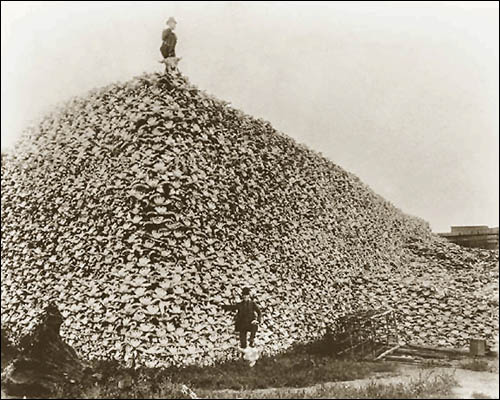


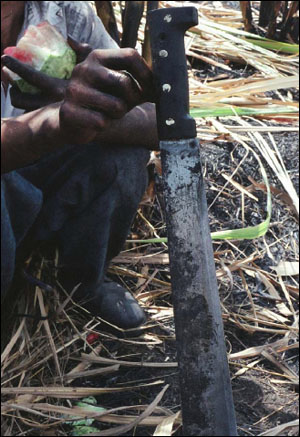
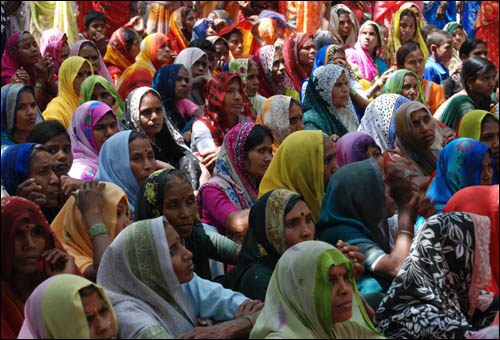
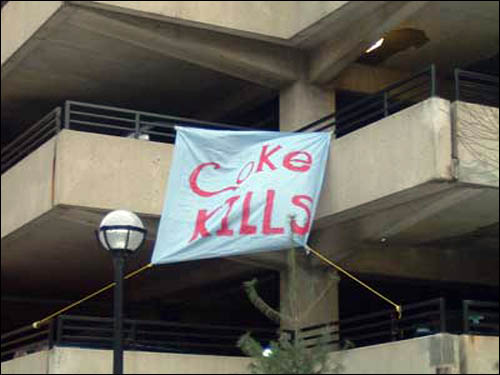

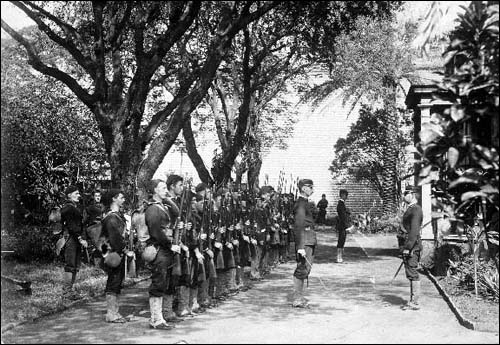
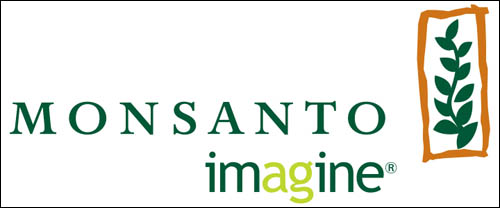




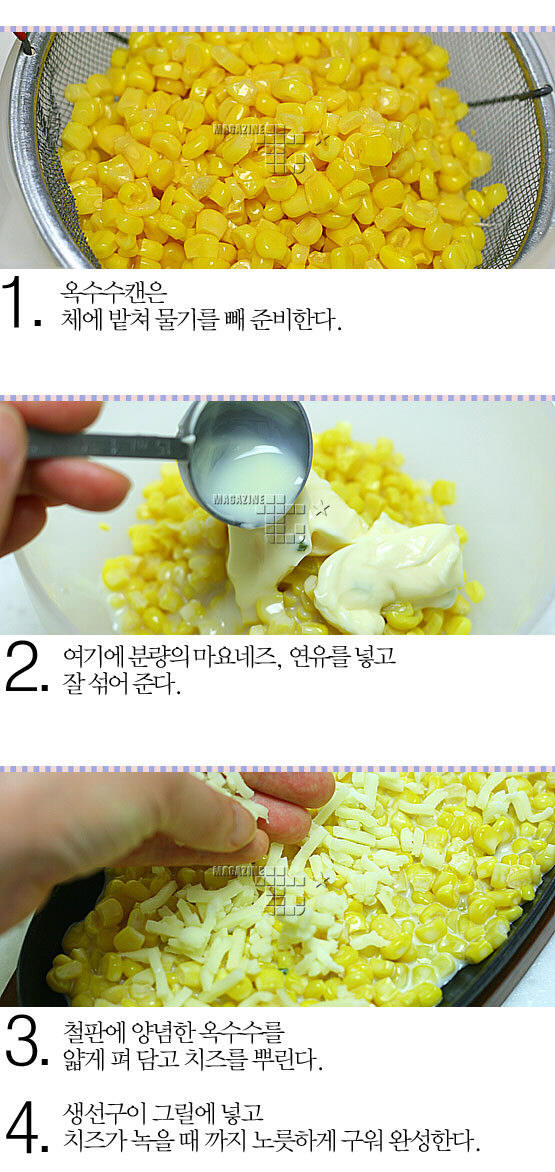
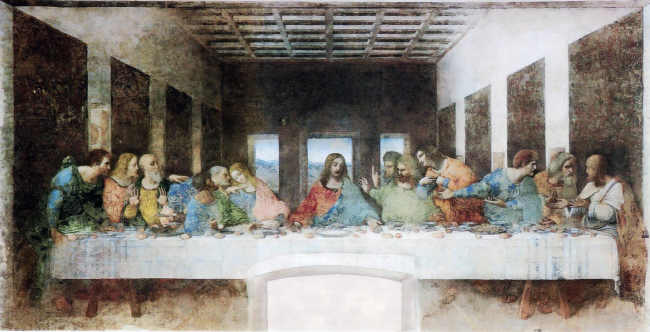
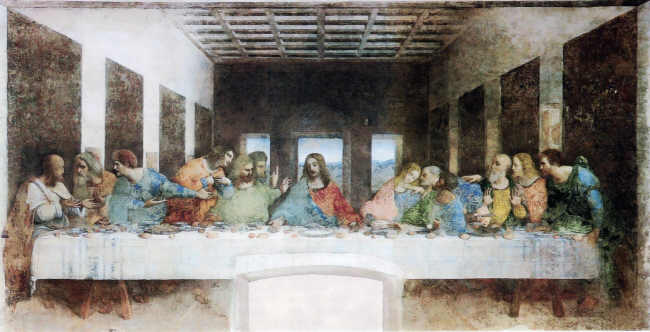
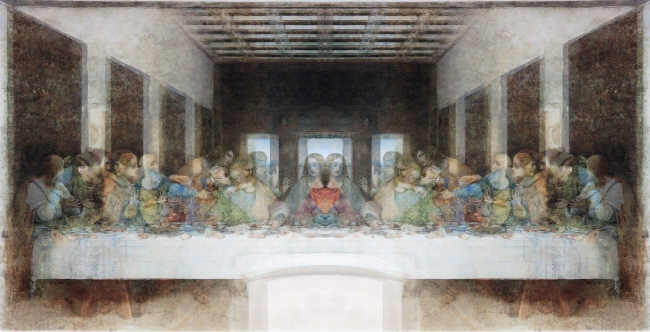
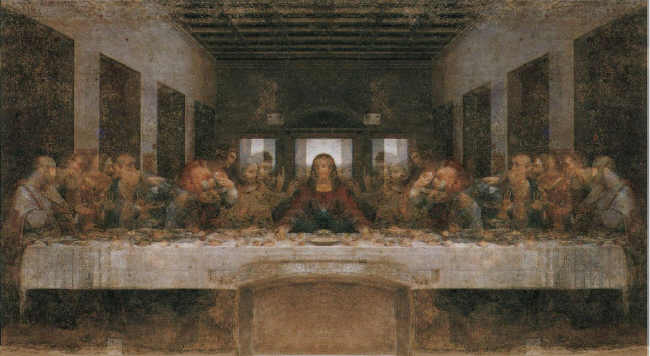
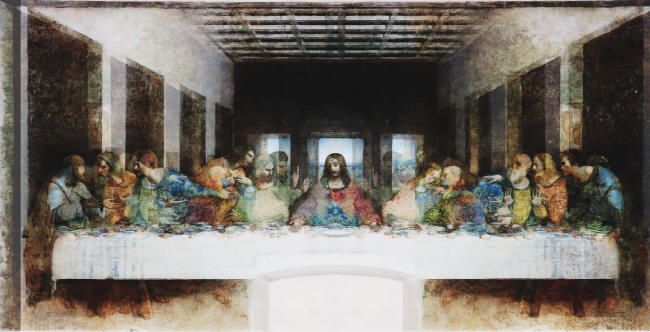
 |
|







 U - 슈퍼주니어
U - 슈퍼주니어 경제학부생들에게.pdf
경제학부생들에게.pdf











